50 Exclusive 6th Grade Writing Prompts that are Printable for Free
- February 22, 2024

Table of Contents Hide
Table of contents, personal narratives:, creative stories:, opinion pieces:, descriptive essays, expository essays, book reviews, research projects, journal entries:, exclusive 6th grade writing prompts , 6th-grade writing prompts , creative writing topics for grade 6 , 6th grade writing prompts with reading passages , recommendations.
For sixth graders, imagination can be the key to creative expression. It’s a strong weapon. With specialized 6th Grade Writing Prompts, you can have an insight into the distinctive thoughts of these young authors and inspire a wide range of creative and inventive ideas.
As a student, every prompt offers you the chance to use narrative to explore new aspects of yourself, from ones that take them to far galaxies to those that delve deeply into your feelings and experiences.
In this article, we will take you through 50 exclusive 6th grade writing prompts that are printable for free. Carefully read through!
- Exclusive 6th Grade Writing Prompts
- 6th-grade Writing Prompts
- Creative Writing Topics for Grade 6
- 6th Grade Writing Prompts with Reading Passages
What Should a 6th Grader Write about?
A sixth grader’s writing can cover a wide range of subjects, contingent upon their experiences, interests, and the particular assignment or goal of the writing work. Some possibilities for topics a sixth grader could write about are as follows:
Students are encouraged to explore their own experiences and share them with others through the use of personal narratives.
They can relive with vivid detail special occasions, like the time they overcame their fear of heights by scaling a mountain, obstacles they’ve overcome, like learning to ride a bike without training wheels, or memorable times spent with loved ones, like a touching holiday celebration or an adventure that strengthened their bond with siblings.
Students acquire insight into their own lives and ideals by thinking back on these experiences and expressing them in writing, in addition to honing their storytelling abilities.
Students can express their imagination and ingenuity via creative stories. Authors can showcase their storytelling skills by creating inventive stories with captivating characters, compelling narratives, and unique settings.
Students are free to let their imaginations run wild, whether they go on an exhilarating journey through a magical kingdom, solve a mystery in a chilling haunted mansion, or explore the depths of space in a futuristic starship.
They hone their narrative abilities, create gripping stories, and bring their imaginative ideas to life on paper via the process of storytelling.
Students can express their opinions on a variety of subjects that are important to them through opinion pieces. Students can use persuasive writing to communicate their ideas, advocate for their beliefs, and express their perspectives on a variety of topics, from pop cultural phenomena to environmental issues to school laws.
Students gain the ability to effectively express their thoughts, provide evidence to back up their claims, engage in critical thinking, and debate—whether they are advocating for tighter environmental rules, defending their favorite book or movie, or suggesting changes to school procedures.
Descriptive essays require students to use language to conjure up vivid images in the readers’ minds and arouse their senses. They can paint a detailed picture of a location they have been to, such a busy city street, a calm beach at dusk, or a comfortable lodge in the woods.
As an alternative, individuals can use rich descriptions and striking pictures to delve into the sensory nuances of a beloved memory, a favorite dish, or an interesting object. Students who practice descriptive writing are better able to arouse readers’ emotions, appeal to their senses, and produce immersive writing.
Expository essays educate students how to present facts and provide a clear, structured explanation of difficult subjects.
They can delve into a variety of topics, including historical events, cultural customs, how-to manuals, and scientific ideas.
Whether they’re breaking down a cultural ritual, exploring the history of ancient civilizations, or explaining how photosynthesis works, students learn how to effectively research, analyze, and present information. This helps them improve their writing, research, and critical thinking abilities.
Through the skillful use of language and images, poetry provides students with a unique means of expression, enabling them to explore themes such as nature, emotions, friendship, and identity. They can play around with various poetry forms, including limericks, sonnets, haikus, or free verse, and investigate the lyrical and rhythmic aspects of language.
Students learn how to use words to express emotions, generate images, and build meaning in their poetry, whether they’re writing a whimsical limerick, a heartfelt sonnet, or a haiku that captures the majesty of a sunset.
By giving students a platform to express their ideas and opinions about books they’ve read, book reviews support the growth of their analytical and critical thinking abilities.
They can assess the book’s advantages and disadvantages, character and topic analysis, and storyline summary.
Students gain the ability to engage with literature thoughtfully, express their opinions clearly, and participate in literary discussions and debates—whether they are analyzing a classic work of literature, suggesting a favorite novel to their peers, or delving into the themes of a recent bestseller.
Research projects allow students to explore interesting subjects in-depth, gather data, and present their results in an orderly and systematic manner. They can delve into a variety of topics, such as social issues, cultural customs, historical events, and scientific occurrences.
Whether they’re looking into the origins of climate change, studying the past of ancient civilizations, or examining how social media affects society, students gain important research skills from these projects.
These skills include how to collect data from trustworthy sources, assess the validity of the data, and effectively and persuasively present their findings.
Keeping a journal gives students a private place to consider their feelings, ideas, experiences, and observations. Journaling allows them to keep track of their daily activities, examine their feelings and responses to situations, and think back on their development and education.
Regular journaling helps kids develop self-awareness, introspection, and mindfulness. This can be done by having them write down their ideas before going to bed, reflect on their experiences after a difficult day, or capture moments of inspiration and insight.
Read ALSO: 107+ Creative Writing Prompts For Middle School Students
- Write a tale about a time-traveling excursion to a significant historical occasion.
- Describe a world in which all people’s dreams come true.
- Which historical figure, and why, would you want to meet if you could?
- Ten years from now, write a letter to yourself.
- Consider being able to teleport to any location on Earth. Which place would you visit first?
- Describe a superhero’s typical day in the life of a neighborhood resident.
- If you could communicate with animals, how would you respond?
- Write a story about a magical item that, although granting desires, has drawbacks.
- Describe a future society in which all aspects of existence are governed by technology.
- What superpower, if any, would you choose to have, and how would you use it?
- Write a tale about a bunch of pals figuring out a mystery in their community.
- Describe an unruly world. How would that feel?
- What exactly does being a good friend entail? Write about an instance where you showed friendship.
- Which disciplines would you include in your own curriculum, if you could create one?
- Write a letter expressing your admiration for the writing of your favorite author.
- Tell about a moment when you had to make a tough choice and how you came to an answer.
- Consider being able to travel to any fictitious place from a book. To what place would you go?
- Write about a moment when, despite the difficulty, you stood up for what you believed in.
- What would you alter, and why, if you could, in the world?
- Write a tale that takes place in a bleak future when humanity is about to perish.
- Write about a day in the life of your favorite movie or book character.
- For you, what does success mean? Write about a moment when you felt accomplished.
- Consider being able to speak with extraterrestrials on a different world. How would you respond?
- Write a letter expressing your admiration for your role model.
- Describe a society in which mind reading is a common skill.
- What new technology, and how might it help civilization, if you could create it?
- Write about a failure you’ve had and the lessons you took away from it.
- Describe a civilization that is utopian and in balance with the natural world.
- What would you change if you could travel back in time to alter one particular historical event?
- Write a tale about a party of adventurers finding a lost culture.
- Describe a world in which magic exists but is kept out of the public eye.
- What does being brave really mean? Write about a brave moment in your life.
- Which historical period—past or future—would you like to live in, and why?
Read ALSO: 140 Exclusive Writing Prompts For Adults
- A Magical Land : Describe a world where magic is real and part of everyday life.
- Time Travel Adventure : Write a story about traveling back in time to a significant historical event.
- Superhero Origins : Create the origin story of a new superhero, including their powers and motivations.
- Mystery Mansion : Describe a spooky mansion and the mysteries hidden within its walls.
- Animal Kingdom : Imagine a world where animals can talk and interact with humans.
- Dream Vacation : Describe your ideal vacation destination and what you would do there.
- Invent a New Planet : Design a planet with unique geography, inhabitants, and customs.
- Lost in the Wilderness : Write about being lost in the wilderness and the adventures that follow.
- Sports Star : Imagine becoming a professional athlete in your favorite sport. Describe your journey to success.
- School of Magic : Enroll in a school for wizards and witches. Describe your experiences learning spells and potions.
- Alien Encounter : Describe an encounter with an alien species and the impact it has on Earth.
- Underwater Adventure : Dive deep into the ocean and explore an underwater world full of wonders and dangers.
- Robot Revolution : Write about a future where robots have become sentient and demand equal rights.
- Time Capsule : Imagine burying a time capsule with items representing your life. What would you include and why?
- A Day in the Life of a Celebrity : Describe a day in the life of a famous celebrity of your choice.
- The Quest for a Magical Artifact : Write a story about a quest to find a powerful magical artifact and the challenges faced along the way.
- Haunted House : Explore a haunted house and uncover its dark secrets.
- Space Exploration : Describe a journey to explore a distant planet in search of new life forms.
- Future Career : Imagine your future career and what a typical day in that profession would be like.
- Invisible Friend : Write about having an invisible friend and the adventures you have together.
Read ALSO: 50 Exclusive 4th Grade Writing Prompts That Are Printable For Free
- Prompt : Imagine you are one of the characters in the passage below. Write a diary entry describing your thoughts and feelings about the events that unfolded.
Reading Passage : “The bell rang, signaling the end of the school day. As Sarah packed her bag, she couldn’t shake off the feeling of dread. She knew she had to face her bully on the bus ride home.”
- Prompt : After reading the passage below, write a persuasive essay arguing whether or not schools should implement a dress code policy like the one described.
Reading Passage : “As students entered the school gates, they were greeted by the sight of their peers dressed in a rainbow of colors and styles. Some wore jeans and T-shirts, while others donned skirts and blazers. There was no uniform requirement, allowing students to express their individuality through their clothing choices.”
- Prompt : Use the information from the passage to write a letter to the editor of your local newspaper expressing your opinion on the issue discussed.
Reading Passage : “The town council is considering banning plastic bags in an effort to reduce pollution and protect the environment. Many residents are divided on the issue, with some arguing that it would inconvenience shoppers and hurt businesses, while others believe it is a necessary step towards a greener future.”
- Prompt : After reading the passage below, write a narrative describing a day in the life of the protagonist, using details from the passage to inspire your story.
Reading Passage : “Jake woke up to the sound of birds chirping outside his window. As he stretched and yawned, he glanced at the clock and realized he was running late for school. He quickly dressed, grabbed his backpack, and raced out the door, eager to start the day.”
- Prompt : Based on the information provided in the passage, write a summary of the main arguments presented by each side of the debate.
Reading Passage : “The school cafeteria is considering replacing unhealthy snacks with nutritious options. Proponents of the change argue that it will improve student health and academic performance, while opponents worry about increased costs and decreased student satisfaction.”
- Prompt : Use the passage below as inspiration to write a descriptive essay about your favorite outdoor activity.
Reading Passage : “As the sun dipped below the horizon, casting a warm glow over the landscape, Sarah and her friends gathered around the campfire. They roasted marshmallows, told stories, and gazed up at the starry sky, feeling at peace in the great outdoors.”
- Prompt : After reading the passage below, write a compare and contrast essay discussing the similarities and differences between the two characters.
Reading Passage : “Emily was outgoing and adventurous, always eager to try new things and meet new people. In contrast, her sister Olivia was shy and reserved, preferring to spend her time lost in books or exploring nature alone.”
- Prompt : Using the information provided in the passage, write a persuasive speech arguing for or against the proposed changes.
Reading Passage : “The city council is considering implementing a curfew for teenagers in an effort to reduce crime and keep young people safe. Supporters believe it will decrease juvenile delinquency, while opponents argue it will unfairly restrict the freedoms of law-abiding teenagers.”
- Prompt : Write a narrative inspired by the passage below, imagining yourself as the protagonist navigating the challenges described.
Reading Passage : “Mark stared at the blank page in front of him, feeling overwhelmed by the enormity of the task ahead. He had a history essay due tomorrow, but he had no idea where to begin. With a sigh, he picked up his pen and started writing, determined to conquer his writer’s block.”
- Prompt : Based on the information provided in the passage, write a response discussing your opinion on the topic and providing evidence to support your viewpoint.
Reading Passage : “The debate over homework continues to divide educators, parents, and students alike. Some argue that it reinforces learning and teaches responsibility, while others believe it causes stress and detracts from family time. What is your stance on the issue?”
Yes, these writing prompts are designed to be age-appropriate and engaging for all 6th graders.
Yes, these writing prompts have been carefully crafted to align with common core standards for 6th grade writing.
It’s recommended to introduce a new prompt regularly, such as once a week, to keep your students inspired and practicing their writing skills consistently.
Engaging with a variety of creative and thought-provoking prompts can definitely help enhance your students’ writing abilities over time.
These varied subjects for sixth-grade writing assignments are sure to stimulate young writers’ creativity and critical thinking. Teachers and parents can easily include these prompts in their lesson plans or home-schooling activities because they are free to print.
Students will be able to convey their own views and perspectives while practicing a variety of writing abilities by responding to these prompts.
These writing prompts can be used as homework assignments, daily warm-ups, or creative writing exercises. They are an invaluable tool for supporting the development of young writers.
- Journalbuddies.com
- Yourdictionary.com
- 50 Exclusive 4th Grade Writing Prompts That Are Printable For Free
- 140 Exclusive Writing Prompts For Adults
- 107+ Creative Writing Prompts For Middle School Students
- Chinese vs Japanese Writing: A Side-by-Side Comparison
Related Posts
Best blog post format for freelance writers: the worst thing you can do.
- May 9, 2024
42 Common Poetry Terms to Know as a Writer
- April 28, 2024
How Many Word Count Are in a Novel? Word Count by Genre
- April 24, 2024
- Writing Tips
- 500+ Free Fiction Writing Prompts For Adults By Genre
- Self Publishing 101
- Best Writing Books
- Dragon Dictation Software Review
- Editing Software
- Email Marketing
- Formatting Software
- Gifts for Writers
- MasterClass Reviews
- Online Courses
- Scrivener 3 Review
- Website Hosting
- YouTube Channels
Select Page
100 creative 6th Grade Writing Prompts
Writing Prompts |
Disclosure: The content on this site is free. Some of the links below are affiliate links from companies like Amazon.com and if you click the links and make a purchase we will receive a small commission at no additional cost to you. Thank you in advance if you decide to support our site by using our affiliate links!
100 Creative 6 th Grade Writing Prompts
Sixth grade is the right time to introduce students to activities that promote self-expression and improves their overall writing skills. In this post, we have come up with a list of 100 writing prompts — from storytelling and expository to research and creative writing prompts — to help students tap into their creativity and hone their writing skills.
In this post, we have for you:
- Storytelling writing prompts
- Research writing prompts
- Reflective writing prompts
- Narrative writing prompts
- Expository writing prompts
- Procedural writing prompts
- Creative writing prompts
So, let’s put this show on the road.
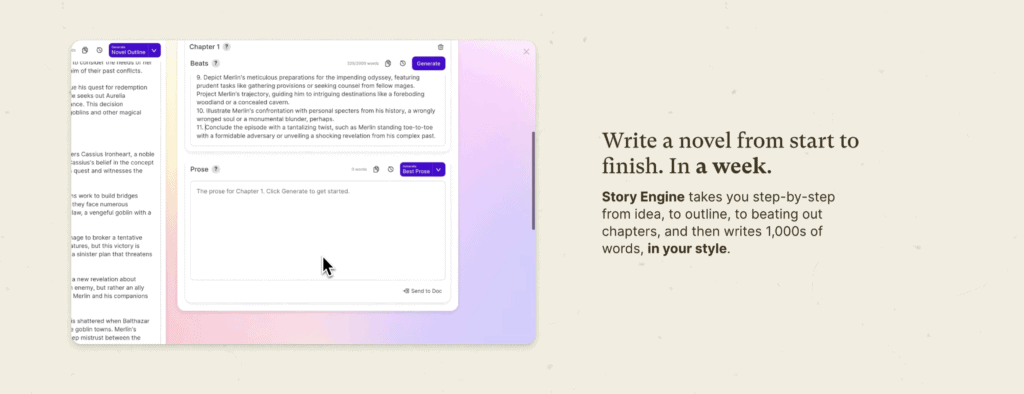
Storytelling writing prompts for 6 th grade
- When we found that the grandpa’s closet opens up to a deep forest, we decided to…
- As I was walking around the local park, a dog came up to me and said, “You have got to listen to my story.” And then he began speaking…
- The most surprising thing we have found in our school was…
- As I was cleaning the attic in my grandparent’s house, I found the genie’s lamp. I decided to…
- My brother and I were in the first fight ever. It all began when…
- Our dream family vacation to… got canceled my younger brother woke up with…
- As the world’s first 12-year scientist, I need to share my invention…
- My first road trip with my dad didn’t go as per the plan. First…
- When Lucy opened her lunch box, she couldn’t help exclaiming “Ugh” because the food looked as gross as…
- I got the biggest surprise of my life when my dog…
- I had never laid eyes on a dragon until that morning when our school took us to the nearby jungle as part of a trekking tour.
- I woke up one morning only to find I have been turned into a big bug. While I was still coming to terms with this, my mother shouted, “Hurry up or you’ll be late for the school.” So I did what I had to do, which was…
Research writing prompts for 6 th grade
- How much time do students spend on the internet?
- How much screen time students have per day?
- Does social media makes peer pressure worse?
- How long can human beings survive without water?
- How long can human beings survive without food?
- How long can fish survive out of water?
- Research your dream career? Mention all the things you must do to achieve it.
- Research the childhood of your favorite writer?
- When, why, and how was your country founded?
- How long camels can go without drinking water? Can they survive long? If yes, how do they manage that?
- How smoking affects your lungs?
- Which has been the most important discovery in the last 50 years?
- What steps can we take to minimize global warming?
- What are civil rights? Who fought for them?
- How do penguins survive in extreme cold?
- Are polar bears good swimmers? If yes, how are they able to swim efficiently in spite of their weight?
- How much food does an elephant needs in a day?
- How shark uses senses to hunt?

Reflective writing prompts for 6 th grade
- Write about a time when you were not able to keep a promise. What had happened? How did you feel?
- What’s the best thing about being in the 6 th grade?
- What’s the worst thing about being in the 6 th grade?
- What has been your biggest learning in the last six months?
- What are the qualities that a good friend must have?
- Write about three qualities you admire in your dad?
- Which sport you like the best and why?
- List your favorite extracurricular activities. What have you learned from them?
- Track the weather for five days? Which was the most comfortable day?
- How students can reduce their screen time?
- Is reading a more satisfying activity than watching television?
- What are the negative effects of social media?
Narrative writing prompts for 6 th Grade
- Do you think you can go three months without the internet?
- Write a letter to your emotional self?
- Is it important for kids to have responsibilities and chores at home?
- What advice would you give to someone who is being bullied at the school?
- Which animal in your opinion represents your personality the most and why?
- Do you like making new friends? Why or why not?
- If you could change one thing about your school, what would it be?
- Write a poem or essay about your parents?
- Describe your favorite family vacation?
- Think about the best day in your life so far. What made the day so memorable?
- Think about the worst day in your life so far. What made the day so miserable?
- Which is your favorite book? How has it impacted you?
- Which your favorite movie? Why do you like it so much?
- Think about your future self. Write about a day in your life, five years from today.
- Tell a family story from the perspective of your mom.
- Who is the fittest person you know? Would you like to become as fit as this person? Why or why not?
- Write about how it feels to spend a night at home alone?
- What are three great things about your school?
- Describe your life if you lived during the Middle Ages?
- What is the biggest problem the world is facing today? How would you solve it?
- How did computers affect our lives?
- Imagine you were asked to pick a new holiday. Describe what you’ll be celebrating and how.
- Could you live without a cell phone for a year? How would you communicate with your friends?
- How hearing and listening are two different things?
- If you could go back in time, which year would you choose?
- You meet a wise man who knows answers to all questions, but you can ask him only one question. What would you ask?
- Who is the oldest person you know?
- Think about a time you were not able to keep a New Year’s resolution? What had happened? Why did you fail?

Expository prompts for 6 th grade
- Describe your favorite short story in your own words.
- Find an interesting story in the newspaper or a local magazine and write it in your own words.
- Write an essay explaining the similarities and differences between you and your sibling or your best friend.
- In what ways Barrack Obama and Abraham Lincoln are similar? In what ways they are different?
- Is life as a sixth grader today different than it was when your parents were studying in the sixth grade? If yes, how it is different.
- Compare and contrast your two close friends.
- How has been your school year so far? What are the main highlights?
- What was the cause of the recent argument you had with your mom or dad? How did it go?
- Compare and contrast two of your most favorite books?
- How is empathy different from sympathy? Explain the concept of empathy?
- How important is to have a hobby? Explain the benefits of having a hobby.
- Explain a problem in your school? How would you solve it?
- How has cell phone changed our lives?
- Is there really something as cell phone addiction? If yes, what it is?
- Gaming addiction is on the rise among kids? How do you think we can tackle this problem effectively?
Procedural writing prompts for 6 th Grade
- Your friend wants to learn how to play your favorite board game. Explain the steps to him or her.
- Explain a grandparent how to use Facebook.
- Explain a reader how to play your favorite computer game.
- Write step-by-step instructions to tie shoelaces.
- Explain a reader how to play your favorite card game.
- Write step-by-step instructions to create a post on Instagram.
- Explain how to complete all the levels of a video game.
- Describe how you get home from school.
Creative writing prompts for 6 th Grade
- If you could spend a week in any holiday destination in the world, where would you go?
- If you had the power to communicate with pets, what conversations would you have?
- Write a poem that describes your family.
- If you could meet one media personality, who would you choose and why?
- If you could change one thing about your country, what would you choose and why?
- You wake up one morning to find that you can fly. What adventures will you have?
- You wake up one morning to find that you have grown taller and your clothes and shoes don’t fit you anymore. What would you do?
We hope these writing prompts will help get your pen or pencil moving. Some of these writing prompts need research, some are intellectually challenging, and some others are fun and creative. If you would like more writing prompts, have a look at this post , which offers tons of additional writing prompts you can use to unleash your writing talent. Good luck!
- Get other writing prompts for kids here :
- 3rd-grade writing prompts
- 4th-grade writing prompts
- 5th-grade writing prompts
- Middle School Writing Prompts
Related Posts
100 cool 8th grade writing prompts.
December 20, 2020

47 Amazing Fantasy Writing Prompts and Story Ideas
August 17, 2018

100 FREE 5th Grade Writing Prompts
November 25, 2020

67 Terrific Mystery Writing Prompts and Story Ideas
August 14, 2018

“This site is owned and operated by FB Global Value LLC, a limited liability company headquartered in New Jersey, USA. FB Global Value is a participant in the Amazon Services LLC Associates Program, an affiliate advertising program designed to provide a means for sites to earn advertising fees by advertising and linking to Amazon.com. As an Amazon Associate, I earn from Qualifying Purchases . FB Global Value LLC also participates in affiliate programs with Bluehost, Clickbank, CJ, ShareASale, and other sites. Sites like Self Publishing Hub which are owned and operated by FB Global Value LLC are compensated for referring traffic and business to these companies.”


Home » Tips for Teachers » The 9 Best Creative and Argumentative Writing Prompts for 6th Grade
The 9 Best Creative and Argumentative Writing Prompts for 6th Grade
Keeping middle schoolers excited about writing is important. Writing is such an essential skill that students will need as they complete their education and move on to finding a real job.Many middle school-age students, however, often begin seeing writing as something that isn’t fun or worthwhile. Other students get discouraged about their abilities as a writer and may stop trying their best.
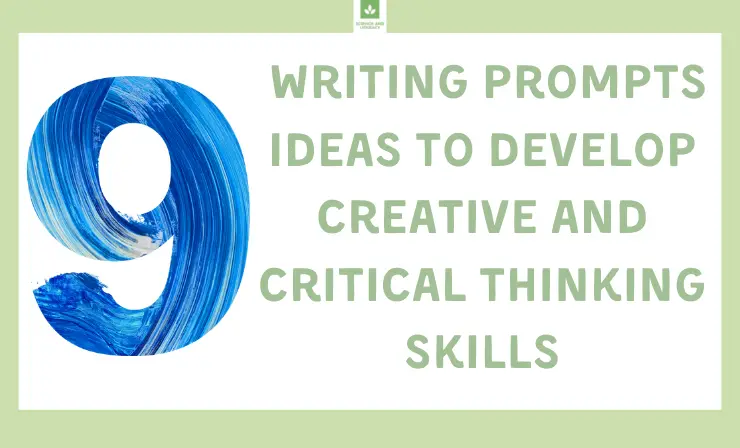
Finding the best writing prompts for 6th grade is so important in keeping students excited and writing and seeing it as something that is worth their time.A few years ago, I took a job as a 6th grade writing teacher. I almost immediately noticed that many of my students seemed bored with writing, while others seemed to shut down when asked to write.I searched and found some engaging writing prompts that sparked my students’ interest. What a difference it made! Students that claimed writing was ‘useless’ were now engaged and sharing their work with others!
I’d love to help you bring about this change in your students, too! Continue reading, and I’ll share:
- The 6th grade writing standards →
- Advantages of using writing prompts with your lessons →
- My favorite creative writing prompts for 6th grade →
- My favorite argumentative writing prompts for 6th grade →
5 Creative Writing Prompts for 6th Grade
Providing students with opportunities for creative writing is important. Creative writing can help students process their emotions, build their confidence, express their individuality, and increase their imagination.
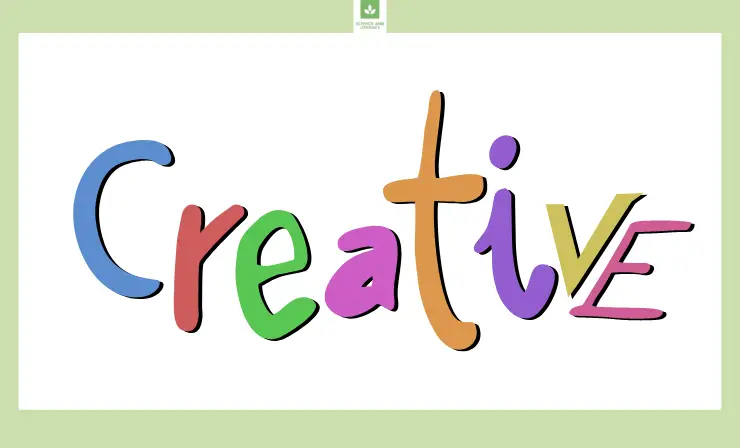
Below are some of my favorite creative writing prompts for 6th grade. You can use document cameras in order to follow your student’s writing.
Prompt: When you become disappointed, what do you do to manage your emotions?
Before having students begin writing, brainstorm some possible reactions as a class. These may include crying, breathing deeply, counting to 10, taking a break/removing oneself from the situation. After brainstorming, have students select the strategy (or strategies) that best describe their reactions and write about what they do.
2. Flying Superpower
Prompt: One morning, you wake up and realize that you are suddenly able to fly. What adventures would you like to go on?
This writing prompt will really tap into students’ creativity and imagination. Since flying is something they clearly have never done, they will have to think about all the things that would be possible and choose a few to write about.

3. Letter to Future Self
Prompt: Write a letter to your future self. What would you want yourself to know?
Tell students that they will be writing a letter to themselves to read when they are older. You can either pick an age/milestone (graduating from college, getting their first job, having children, etc.), or allow students to pick. Ask students to think about what they believe would be important to know at that juncture in their life and include it in their letter.
You could also modify this by having students write a letter to their past selves. What would they have wanted to know at the beginning of the school year, before they lost their first tooth, or before they even learned how to walk?
4. No Internet for a Month
Prompt: If there was no internet available for a month, what would you do?
This could be a fun one to do with middle schoolers who are so dependent on technology and the internet. Before students begin writing, get them to brainstorm a list of all the ways their lives are dependent on the internet.

Encourage them to think beyond the ‘obvious’ online game play and video streaming to consider other impacts such as ordering items online or communicating via email with friends and family.
5. Genie in a Bottle
Prompt: You released a genie from her magic bottle, and she said she would give you any talent that you ask for. What talent would you want and why?
This is another great creative writing prompt for sixth graders. They’ll have fun thinking about a talent they would like and what they would like to do with that talent.

4 Argumentative Writing Prompts for 6th Grade
Argumentative writing is another important skill for students to practice and develop. With argumentative writing, students must decide their opinion or position related to an issue and provide reasons that support their position. These reasons should be evidenced based, so research to find the support is often required.

You’ll find some of my favorite argumentative writing prompts to use with 6th grade students below.
Prompt: Which animal makes the best pet? Support your opinion with facts and examples.
I like this writing prompt for introducing students to argumentative writing. The topic of pets is something all students are familiar with, even if they don’t personally own a pet.

You can also use this topic to introduce students to providence factual reasons, versus opinions, to support their answers. For example, if students want to say that a cat is the best pet, a factual reason can’t be that cats are cute. However, they could say something like cats are the best pet because they do not have to be taken outside to go to the bathroom on a cold or rainy day.
2. Teaching Math in School
Prompt: Is it necessary to teach math in school? Why or why not?
I liked using this writing prompt with my 6th graders. Before I had students start, I took an initial poll by having the students raise their hands. Not surprisingly, a fair number of hands went up to vote against teaching math in school.

However, after we discussed the pros and cons of eliminating math instruction and students had to make their final decision before starting on their prompt, a lot of students changed their minds. It was encouraging to see them looking at the stronger reasons for leaving math in the curriculum and letting them outweigh their desire for ‘easier’ school.
3. Screen Time Limits
Prompt: Should parents place limits on how much screen time their children can have? Why or why not?
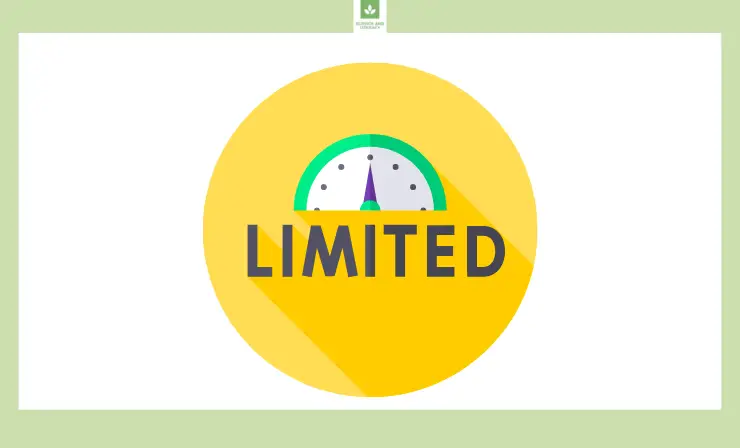
However, once they start thinking about reasons to limit screen time and examine evidence showing the impact of too much screen time on children, they may change their mind.
4. Conserving Energy
Prompt: What is the most important thing all households should be doing to conserve energy?
This writing prompt can pair nicely with a science unit on energy conservation. Clearly, there are a number of things that families can do to reduce their environmental impact.
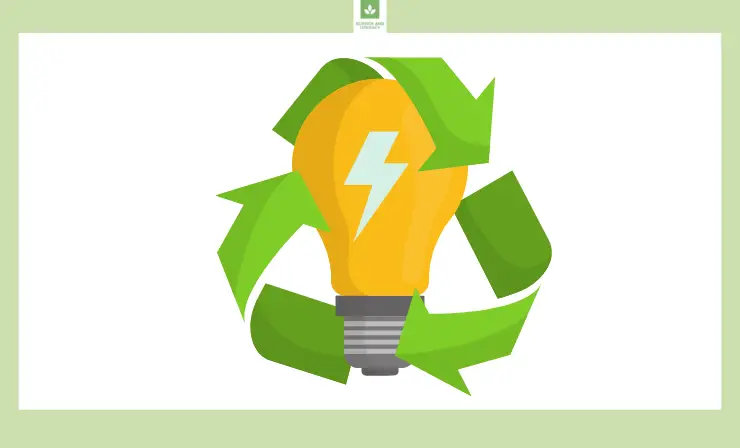
However, for this writing prompt, students must decide which one thing is the most important and provide evidence to support their opinion.
Writing Standards for 6th Grade
Sixth graders will continue to build on the knowledge and skills they learned in elementary school. As the first of the middle school years, the writing expectations for sixth grade will be greater than those during the elementary school years.
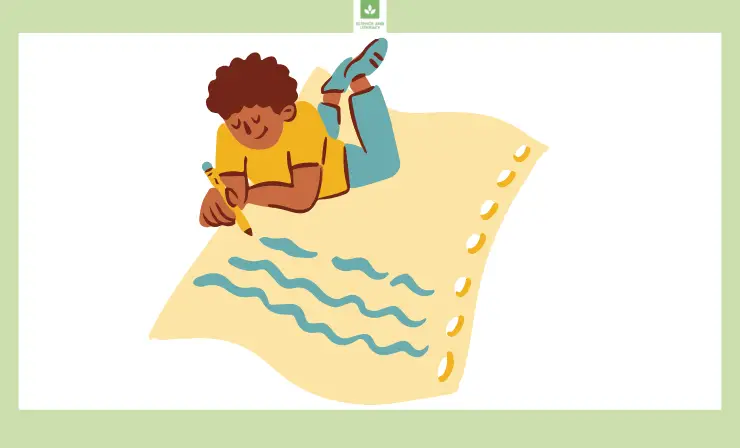
Sixth grade is a critical year for students in regards to writing and other subject matters. They are transitioning from elementary school to the upper grades and will need the right supports to help them master the grade-level standards.
Below is an overview of the writing standards for 6th grade related to the writing process, writing purposes, writing evaluation, conventions, and research and inquiry.
Writing Process
Students should receive instruction and practice on each stage of the writing process. They should independently implement each of the stages when producing their own written work.
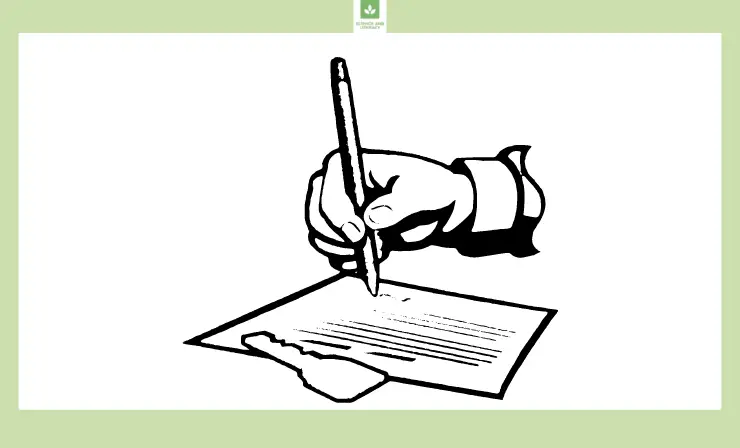
The stages of the writing process that sixth graders are expected to know and use include:
Writing Purposes
Sixth graders should be composing texts for a variety of purposes and intents. Many of these texts should be at least 500 to 700 words long.

Some of the different forms/intents that students should be writing about in sixth grade include:
- Research Reports
- Responses to Literature
Writing Evaluation
In sixth grade, students should practice evaluating and giving constructive feedback for another student’s wiring.

They should also begin evaluating their own work and identify their strengths and weaknesses as a writer. Then, they should use this information to set persona writing goals for improving their work.
Conventions
Below are some of the key convention skills that sixth graders should be proficient with:
- Sentence structure
- Capitalization
- Punctuation
- Cursive or manuscript
Research and Inquiry
Research and inquiry is another important standard for sixth graders to show proficiency with. By the end of the year, students should be able to:
- Compile information from multiple sources to complete a report
- Use graphic organizer to show prior knowledge about a subject
- Create a plan for research and take notes about a topic
- Create appropriate questions to research
- Choose appropriate and authoritative sources
- Locate relevant information from resources
- Summarize the information found from various sources
- Document and cite sources
- Understand and articulate the importance of avoiding plagiarism

Advantages of Writing Prompts at the Lessons
You may be wondering why you should use writing prompts with your sixth graders. There actually are a number of benefits associated with using writing prompts, some of which may surprise you.
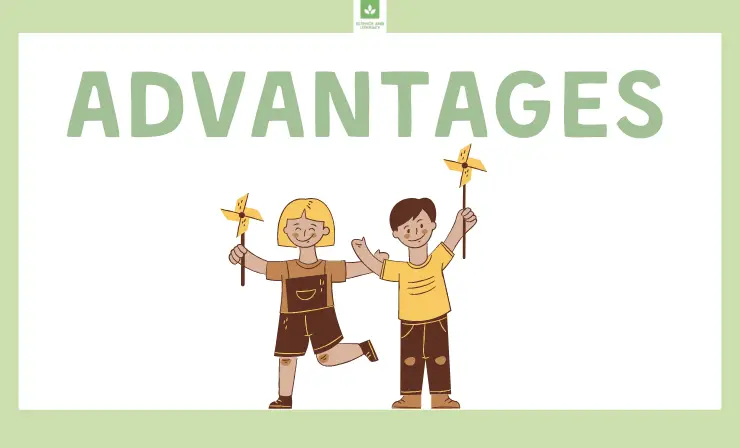
A few of the benefits of using writing prompts during your writing instruction include:
- The ability to focus student writing on a specific form of writing (informative, narrative, expository, etc.).
- Giving students the opportunity to practice writing and strengthen their skills as a writer.
- Presenting students with engaging tasks and assignments.
- Helping us as teachers come up with new ideas to get our students interested and engaged.
- You can find many writing prompts online for free, which is always a benefit when you are a teacher.
Got to sub in 6th grade today, the predictions were coming fast and furious for today’s writing prompt. Got to love engaged students! pic.twitter.com/nBfzMxxP0T — Nick Jurrens (@NickJurrens) February 20, 2021

- Unlock Creativity with Writing Prompts for Grade 6 Students
Unlock Creativity with Writing Prompts for Grade 6 Students Writing prompts for grade 6 students are valuable tools for educators and parents to help students explore their thoughts, feelings, and ideas through creative writing exercises. These prompts cover a variety of topics, including personal experiences, thought-provoking scenarios, and ethical dilemmas. They encourage critical thinking, effective expression, and the development of writing skills.
At the 6th-grade level, it is important to provide a supportive and engaging environment for students to practice and improve their writing abilities. Writing prompts specifically designed for 6th graders can inspire them to ponder real-world issues, reflect on personal experiences, and imagine creative solutions to hypothetical situations.
The importance of writing prompts lies in their ability to serve as a starting point for students to express their thoughts and ideas, helping them overcome writer’s block. They also expose students to different genres and styles of writing, expand their writing horizons, and enhance their analytic and problem-solving abilities. Writing prompts encourage creativity, self-discovery, and the development of crucial communication skills.
- Key Takeaways:
- Writing prompts for grade 6 students help them explore their thoughts, feelings, and ideas through creative writing exercises.
- These prompts cover a variety of topics and encourage critical thinking, effective expression, and the development of writing skills.
- Writing prompts provide a starting point for students to express themselves, overcome writer’s block, and enhance their communication skills.
- They expose students to different genres and styles of writing, expanding their horizons and improving analytic and problem-solving abilities.
- Using writing prompts aligns with the 6th-grade writing curriculum and supports the transition to middle school.
The Benefits of Writing Prompts for Grade 6 Students At the 6th-grade level, it is important to provide a supportive and engaging environment for students to practice and improve their writing abilities. Writing prompts specifically designed for 6th graders can inspire them to ponder real-world issues, reflect on personal experiences, and imagine creative solutions to hypothetical situations.
- Examples of Writing Prompts for Grade 6 Students
- Imagine a hidden room in your home: Describe the room and explain why it is hidden.
- Write a story about a day when everyone’s dreams come true.
- If you could communicate with animals, what would you say to them and why?
The transition from elementary to middle school brings new challenges and expectations for 6th-grade students’ writing skills. The curriculum emphasizes narrative writing, essay writing, personal narratives, reading comprehension, vocabulary development, and problem-solving. Various types of prompts, such as narrative prompts, short story ideas, personal narratives, descriptive prompts, persuasive prompts, and expository prompts, help students practice different writing styles and develop their writing abilities.
- The Writing Prompts and the 6th Grade Writing Curriculum
Exploring Different Types of Writing Prompts for Grade 6 Students
- Creative Writing Prompts
Examples of creative writing prompts for grade 6 students include imagining a hidden room in their home, a day when everyone’s dreams come true, and communication with animals. These prompts encourage students to think outside the box and explore their imagination. Through these exercises, students can develop their storytelling skills and express their ideas in unique and engaging ways.
- Imagine stumbling upon a mysterious portal in your school courtyard. What adventures await on the other side? Describe the new world you discover, its peculiar inhabitants, and the challenges you face.
- You find a magical pocket watch that allows you to travel through time. Would you explore the wonders of the past or venture into the unknown future? Share your experiences and the lessons you learn.
- Your pet gains the ability to speak overnight. What conversations would you have? Delve into the humorous dialogues, heart-to-heart talks, and unexpected adventures with your newfound talking companion.
- One day, your class takes a field trip to a mystical forest where every plant has a magical property. Describe the enchanted flora, the challenges faced, and the ultimate goal of your quest.
- If you woke up with superpowers tomorrow, what would they be? Craft your superhero origin story, detailing your newfound abilities, the challenges faced, and the responsibilities that come with being a hero.
- You have the opportunity to invent one groundbreaking device. What is it, and how does it revolutionize the world? Dive into the details of your invention, its purpose, and the impact it has on society.
- Your class is creating a time capsule to be opened in 50 years. What items would you contribute, and what messages would you leave for the future generation? Share your thoughts on the legacy you wish to impart.
- You receive a letter from an extraterrestrial pen pal. Describe your correspondence, the cultural exchange, and the intergalactic adventures that unfold through your written exchanges.
- While exploring a cave, you discover a hidden underground world. Describe the fantastical creatures, landscapes, and challenges you encounter on your subterranean adventure.
- You receive a paintbrush with the power to bring your drawings to life. Illustrate the magical scenarios you create, the characters that come alive, and the enchanting tales that unfold.
- Narrative Writing Prompts
Narrative writing prompts for 6th grade students provide opportunities for them to create their own stories, develop characters, and plot thrilling adventures. These prompts can challenge students to write about their own personal experiences or engage in fictional storytelling. They help students develop their narrative skills, build a strong foundation in storytelling, and improve their ability to captivate readers.
- You stumble upon an ancient map hidden in the attic. As you decipher its cryptic symbols, it leads you on a thrilling adventure. Describe your journey, the challenges faced, and the ultimate discovery awaiting you at the journey’s end.
- One morning, you wake up in a different time period. Chronicle your experiences as you navigate the customs, technologies, and societal norms of this unfamiliar era. Reflect on the lessons learned during your time-travel escapade.
- While exploring your school’s archives, you discover a forgotten artifact with mysterious powers. Detail the artifact’s origin, the secrets it holds, and the impact it has on your life and those around you.
- Imagine a day in the life of a superhero with unique powers. Describe your superhero persona, the challenges faced, and the moral dilemmas encountered while balancing a double life.
- During a camping trip, you stumble upon a forest imbued with magic. Share your encounters with mythical creatures, enchanted landscapes, and the transformative experiences that occur within this mystical realm.
- Write about an unexpected friendship that blossoms between you and someone seemingly different. Explore the challenges faced, the shared adventures, and the lessons learned about acceptance and understanding.
- You invent a revolutionary device with unintended consequences. Delve into the ethical dilemmas, societal impacts, and personal reflections as you grapple with the aftermath of your groundbreaking creation.
- Your class creates a time capsule to be opened in the future. Detail the items you contribute, the significance behind each choice, and the messages you convey to future generations.
- You participate in an intergalactic exchange program, living on an alien planet. Chronicle your experiences, the extraterrestrial customs you encounter, and the friendships forged across the cosmos.
- You discover a book that brings its stories to life. Dive into the fantastical worlds, characters, and adventures that unfold as you read this enchanted tome.
- Persuasive Writing Prompts
Persuasive writing prompts for grade 6 students introduce them to the art of persuasion and argumentation. These prompts encourage students to express their opinions, support them with evidence, and convince others to see their point of view. Persuasive writing prompts cover a range of topics, from current events to social issues, allowing students to practice critical thinking, research, and persuasive techniques.
- Convince your classmates that incorporating more outdoor education into the curriculum is essential for a well-rounded learning experience. Support your argument with examples of the benefits of outdoor learning.
- Present a persuasive case either for or against abolishing homework. Use evidence and logical reasoning to support your stance, considering the impact on students’ well-being and academic performance.
- Convince your family or classmates to adopt a pet. Provide compelling reasons for the positive impact of having a pet, including companionship, responsibility, and the joy they bring to a household.
- Persuade your school or community to implement or enhance recycling programs. Present the environmental benefits of recycling and the responsibility we have in preserving the planet for future generations.
- Argue either for or against limiting screen time for children. Support your position with evidence regarding the potential effects on physical and mental health, as well as the importance of alternative activities.
- Convince your school to adopt or abandon a uniform policy. Discuss the potential benefits of uniforms in promoting equality and reducing distractions, or argue for the importance of individual expression through clothing.
- Persuade your peers to engage in volunteer activities. Highlight the personal and societal benefits of volunteering, emphasizing how it contributes to character development and community well-being.
- Convince your classmates and school administration to limit or eliminate sugary drinks from school vending machines. Provide evidence of the health risks associated with excessive sugar consumption and advocate for healthier beverage options.
- Persuade your classmates about the importance of learning a second language. Discuss the cognitive, cultural, and career advantages of being bilingual or multilingual.
- Argue for the importance of balancing technology use with outdoor playtime, especially for children. Present evidence on the benefits of outdoor activities for physical and mental well-being, urging a healthy equilibrium.
- Descriptive Writing Prompts
Descriptive writing prompts for grade 6 students focus on enhancing their ability to vividly describe people, places, objects, and experiences. These prompts challenge students to use sensory details, figurative language, and descriptive techniques to bring their writing to life. By engaging their senses and imagination, students can improve their descriptive writing skills and create immersive stories that captivate readers.
- Transport your readers to an enchanting winter scene. Describe the glistening snow, the crisp air, and the sounds of nature hushed by the blanket of white. Engage all senses to create a magical winter wonderland.
- Take your audience on a virtual journey through a tropical rainforest. Detail the vibrant flora and fauna, the cacophony of exotic sounds, and the humidity that hangs in the air. Paint a rich, sensory portrait of this lush environment.
- Explore the eerie atmosphere of an abandoned amusement park. Describe the rusted rides, overgrown pathways, and the whispers of a bygone era lingering in the air. Create a sense of mystery and nostalgia.
- Capture the beauty of a sunset over the ocean. Describe the changing colors of the sky, the rhythmic sounds of the waves, and the gentle breeze that carries the salty scent. Convey the tranquility and majesty of this coastal moment.
- Step into a timeless library with ancient books and hidden corners. Detail the scent of aged paper, the creaking wooden floors, and the profound silence broken only by the turning of pages. Immerse readers in the world of knowledge.
- Transport your readers to a bustling night market. Describe the vibrant colors of stalls, the enticing aromas of street food, and the lively chatter of people. Convey the energy and diversity of this nocturnal marketplace.
- Explore the contents of an old attic filled with forgotten treasures. Describe the dusty furniture, the cobweb-covered boxes, and the nostalgic items that hint at tales from the past. Evoke a sense of history and mystery.
- Paint a picture of a tranquil meadow in springtime. Describe the blossoming flowers, the buzzing of bees, and the gentle rustle of a light breeze. Capture the essence of renewal and growth in this idyllic setting.
- Take your readers inside a magical cave adorned with glowing crystals. Describe the colors, the reflections, and the otherworldly feel of the cavern. Create a sense of awe and wonder within the depths of the earth.
- Explore the eerie ambiance of a haunted house atop a hill. Describe the creaking doors, the flickering candlelight, and the mysterious shadows that dance on the walls. Convey the spine-tingling atmosphere of this mysterious abode.
- Types of Writing Prompts for Grade 6 Students
Incorporating these different types of writing prompts can help grade 6 students develop their creative, narrative, persuasive, and descriptive writing skills. These prompts provide a framework for students to explore their ideas, refine their writing techniques, and engage in critical thinking. By utilizing a variety of prompts, educators can create an inclusive and stimulating learning environment that nurtures students’ writing abilities.
By offering a diverse range of writing prompts, educators can cater to students’ individual interests and learning styles. This encourages active participation and fosters a love for writing in grade 6 students. Through regular exposure to writing prompts, students can build a strong foundation in communication skills, boost their self-confidence, and develop their unique writing voice. So, why wait? Unlock your creativity with these writing prompts for grade 6 students and start your writing journey today!
Conclusion In conclusion, using writing prompts in grade 6 classrooms can unlock creativity, engage students, and improve their writing skills. Writing prompts for grade 6 students are valuable tools for educators and parents to help students explore their thoughts, feelings, and ideas through creative writing exercises. These prompts cover a variety of topics, including personal experiences, thought-provoking scenarios, and ethical dilemmas. They encourage critical thinking, effective expression, and the development of writing skills.
In the 6th grade, various types of prompts, such as narrative prompts, short story ideas, personal narratives, descriptive prompts, persuasive prompts, and expository prompts, help students practice different writing styles and develop their writing abilities. These prompts align with the 6th-grade writing curriculum, which emphasizes narrative writing, essay writing, personal narratives, reading comprehension, vocabulary development, and problem-solving.
Using writing prompts in grade 6 classrooms can provide students with a solid foundation in writing, enable them to think critically and creatively, and prepare them for the challenges of middle school and beyond. By incorporating writing prompts into their teaching methods, educators can foster a lifelong love for writing and equip students with essential skills for success in academic and professional endeavors.
- Writing prompts for grade 6 students are creative writing exercises that help students explore their thoughts, feelings, and ideas through different topics and scenarios.
- Writing prompts encourage critical thinking, effective expression, and the development of writing skills. They also help students overcome writer’s block, expose them to different genres and styles of writing, and enhance their analytic and problem-solving abilities.
- Grade 6 students can explore various types of writing prompts, including creative writing prompts, narrative prompts, persuasive prompts, and descriptive prompts.
- Writing prompts align with the 6th-grade writing curriculum, which emphasizes narrative writing, essay writing, personal narratives, reading comprehension, vocabulary development, and problem-solving.
- Source Links
- https://www.prodigygame.com/main-en/blog/writing-prompts-for-kids/
- https://brilliantio.com/6th-grade-writing-prompts/
- https://scienceandliteracy.org/writing-prompts-for-6th-grade/

50 Engaging 6th Grade Writing Prompts for Thoughtful Essays
Sixth grade marks a big transition in students’ lives. They’re no longer little kids, but they’re not quite teens either–that’s what middle school is all about. To help your students bridge this transition with ease, it’s important to give them plenty of opportunities to practice their writing skills since they’ll be doing a lot of writing in high school and beyond.
Over and above that, writing can be the perfect way for kids to express themselves and explore the world around them. That will only happen if you give them the space to do so, though, so here are 50 engaging 6th-grade writing prompts to help your students get their creative juices flowing.
Narrative Writing Prompts

Narrative writing revolves around telling a story with a plot that has rising action, a climax, and a resolution. These narrative writing prompts will give your 6th-grade students plenty to think about–and write about.
Story Starters

Students will often struggle with where to start their stories. These story starters will help them get past that initial hurdle by giving them some ideas to get their narratives going.
1. I had the biggest fight with my best friend yesterday. It all started when…
2. My first trip to the beach wasn’t what I expected. I thought it would be…
3. I’ll never forget the time when I was lost in the city. It was…
4. I had the biggest surprise of my life when…
5. My family went on the craziest road trip last summer. We started out by…
As you guide your students through their writing journey, make sure to encourage them to be creative and have fun with it – but still have them include the essential elements of a story, like rising action, a climax, and a resolution, so that their stories are well-rounded and engaging.
Personal Narrative Prompts

Personal narratives are all about giving students the opportunity to tell their own stories in descriptive ways. Here are writing prompts to get them started.
6. What’s the best (or worst) birthday you’ve ever had? Why was it so great (or terrible)?
7. What’s the bravest thing you’ve ever done? What made you do it?
8. Think about your future self–where do you see yourself in 1 year? Write about it.
9. Think about the best day you’ve ever had. What made it so special?
10. Describe a time when the weather was really extreme. Describe it.
Reflective Writing Prompts

Reflective writing is a lot like journaling–it gives students the opportunity to process their thoughts and feelings on a given topic. These reflective writing prompts/journal prompts will encourage thoughtful reflection in your students while giving them some fun.
11. Make a list of your favorite things about yourself.
12. Take a walk in nature and describe what you see. What emotions does it evoke in you?
13. Describe your sports or extracurricular activities. What have you learned from them all?
14. Make a list of all the emotions you experience throughout the day.
15. Make a record of your daily objectives. Consider which one was the most simple to accomplish.
Journal prompts are usually effective because they make you think about a certain topic in a different, more introspective way, and so students should be encouraged to approach these writing prompts with open minds and hearts.
Informational Writing Prompts

Informational writing is an essential skill for middle-schoolers, especially as they head into high school and college, where they’ll be expected to write long-form essays rather than fiction. These informational writing prompts will give your students plenty of practice with this type of writing.
Expository Prompts

Expository writing is a type of nonfiction writing that requires students to investigate an idea, assess evidence, expand on the idea, and present an argument concerning that idea in a clear and concise manner. These prompts will help your students hone their expository writing skills.
16. Compare and contrast two of your friends.
17. Choose a challenge at your school. What’s the ideal solution for it?
18. Discuss a problem in a movie you enjoy. What was the outcome of the situation?
19. What was the cause of a recent argument you had? What was the effect?
20. Find an interesting story/narrative in your local newspaper and tell it in your own words.
Research Prompts

Next, research writing prompts will help students practice their research skills by investigating a given topic and finding credible sources to support their claims. These research writing prompts will allow your students to conduct investigative research and write about what they’ve found in detail.
21. How long can fish survive without water?
22. What animals are on the verge of extinction?
23. What’s the history of your favorite sport, and how did it develop?
24. What are people’s civil rights, and who has fought for them?
25. Explore your dream career. What skills would you need to succeed in it?
This may be a good time to introduce your students they could use to reference their information and give credit where it’s due. Inform them that not all sources are created equal, and brainstorm some tips for evaluating the credibility of a website.
Procedural Prompts

As their name suggests, procedural writing prompts provide students with the opportunity to write clear and concise instructions on a given topic. These prompts will help your sixth graders learn the essentials of procedural writing.
26. Make a user guide for anything you use frequently (e.g., your computer, smartphone, video game console).
27. Write a set of instructions for cleaning your room.
28. Teach a younger reader how to do homework without wasting time.
29. What’s the quickest way for you to go to the library if you’re in your classroom now?
30. Describe the steps involved in tying a shoe.
Argument Writing Prompts

The next type of writing prompt is argument writing. Argumentative writing is a type of nonfiction writing that requires students to investigate a topic, collect evidence, and assess their findings to defend a point of view while also considering the perspectives of others.
These argumentative writing prompts will give your young writers practice with this type of persuasive writing.
Argumentative Essay Prompts

The most common type of essay prompt on standardized tests is the argumentative essay question since it’s intellectually challenging. In these questions, students will be given a prompt and they’ll be asked to take a position on an issue or topic.
They’ll then need to provide satisfactory evidence from their research to support their position. Here are some prompts to get them started.
31. Should school uniforms be required in all schools?
32. Is it ever okay to break the law?
33. Do you think people should be required to vote? Why or why not?
34. Is Monday through Friday the best school schedule?
35. Is it important to learn science?
Persuasive Prompts

Emotional appeals can be a powerful tool in persuasive writing. In these prompts, students will need to use their powers of persuasion and other rhetorical strategies to convince their readers to see their point of view. Here are persuasive prompts to put your students’ powers of persuasion to the test.
36. Make a case for or against year-round schooling.
37. Should there be a limit on the amount of homework students can receive?
38. Persuade your parents to let you choose your own bedtime.
39. What’s the best way to deal with bullies in schools?
40. Who’s the greatest sports athlete of all time?
Poetry Prompts
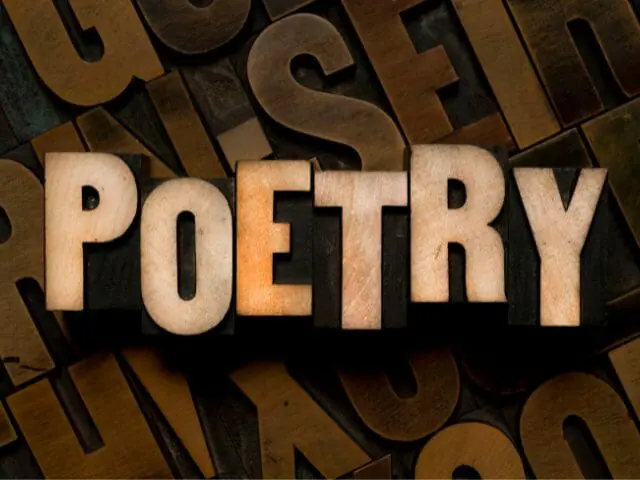
Poetry prompts are a great way to get your students to write creatively. These prompts will help your students tap into their imaginations and write poems that are both beautiful and moving. Whether in free verse or strict meter, your students will be sure to impress you with their poetic prowess.
41. Write about how you’re feeling right now in a haiku .
42. Create a poem in memory of a book, TV, or film character who has died.
43. Choose an onomatopoeia and use it five times in a poem.
44. Consider a metaphor for the current school year and create a poem about it.
45. Write a friendship poem in which every line includes a rhyme for “friend.”
Creative Writing Prompts

Last but not least, creative writing is all about using imagination to create a piece of writing that’s unlike anything else. This creative writing prompts will help your students tap into their imaginations and write some truly unique pieces revolving around self-expression.
46. If I could have any superpower, it would be…
47. Write about a day in the life of your favorite cartoon character.
48. If you could be a historical figure for a day, who would you choose to be?
49. Write a family story from the perspective of your pet.
50. Invent a new holiday and describe how it’s celebrated.
Jump In : Better prepare your 6th graders for this activity by improving their reading comprehension first! Proceed to read my list of fun comprehension exercises here — 11 Fun 6th Grade Reading Comprehension Activities (& Games) .
Dust Off Those Pencils and Get Ready to Write!
While many students lose motivation as their first middle school year goes on, these 50 6th grade writing prompts will help keep them excited about writing all year long. With tons of different genres and modes of writing to choose from, there’s something here for everyone! So get those pencils sharpened and those minds thinking—it’s time to start writing!
Last Updated on July 24, 2022 by Emily
- Pinterest 67
Emily is an active mother of two and a dedicated elementary school teacher. She believes the latest technology has made a huge impact on the quality of early learning and has worked hard to upgrade her classroom and her own children’s learning experience through technology.
Follow her on Twitter , Pinterest , and Instagram for more teaching fun!

Save my name, email, and website in this browser for the next time I comment.
6th Grade Writing Prompts: Unlocking Imagination
By: Author Paul Jenkins
Posted on Published: March 27, 2023 - Last updated: July 31, 2023
Categories Writing
6th Grade Writing Prompts are a valuable tool for educators and parents alike, allowing young students to explore their thoughts, feelings, and ideas through creative writing exercises. These prompts can cover various topics, from personal experiences and emotions to thought-provoking scenarios and ethical dilemmas. The aim is to encourage students to think critically and express themselves effectively while developing their writing skills.
At this crucial stage of development, providing a supportive and engaging environment for students to practice and improve their writing abilities is vital. Numerous resources offer a wealth of compelling writing prompts specifically designed for 6th graders. The prompts you’ll find below in this article can inspire students to ponder real-world issues, reflect on their personal experiences, and imagine creative solutions to hypothetical situations.
The Importance of Writing Prompts
Writing prompts play a crucial role in developing the writing skills of 6th-grade students. They provide a starting point for students to begin expressing their thoughts and ideas, helping them overcome the common challenge of “writer’s block.” As students engage with various writing prompts, they learn to think critically, express their opinions, and dive into imaginative storytelling.
By offering a diverse range of topics, such as prompts that focus on procedural writing, students are exposed to different genres and styles of writing. This variety expands their writing horizons and helps them become well-rounded, versatile writers.
Introducing writing prompts at the 6th-grade level also enhances students’ analytical and problem-solving abilities. They learn to use evidence, logic, and reasoning to support their viewpoints and persuade readers. Additionally, writing prompts allow students to explore their creativity and foster a sense of self-discovery.
Lastly, engaging with writing prompts helps 6th graders develop crucial communication skills that serve as a foundation for future academic success and life experiences. Writing prompts encourage active participation in the learning process, promote self-expression, and cultivate a lifelong love for writing.
25 6th Grade Writing Prompts
- Imagine you’ve discovered a hidden door in your home that leads to a secret room. Describe the room and what you find inside.
- Write a story about a day when everyone’s dreams come true. How does this change the world?
- If you could switch lives with any historical figure for a day, who would you choose and why? Describe your day in their shoes.
- Imagine you have a time machine that can only be used once. Where and when would you go, and what would you do?
- Write a letter to your future self ten years from now. What advice would you give, and what questions would you ask?
- Create a new holiday and explain its celebration, including unique traditions or activities.
- Write an opinion essay on whether or not students should be required to wear uniforms in school. Provide reasons to support your argument.
- Imagine you can communicate with animals. What would you talk about, and which animal would you be most excited to speak with?
- Write a short story where the main character finds a mysterious map that leads to a hidden treasure.
- You’ve been chosen to represent Earth in an intergalactic council. What would you share about our planet and its inhabitants?
- Write a persuasive essay arguing for or against using technology in the classroom.
- Create a new superhero and describe their powers, backstory, and how they use their abilities for good.
- Imagine you are the president for a day. What would be your top priorities, and how would you address them?
- Write a story that starts with the sentence: “It was a dark and stormy night…”
- Create a fictional island and describe its geography, culture, and inhabitants. What makes this island unique?
- If you could invent a new gadget or tool to make life easier, what would it be, and how would it work?
- Write a personal narrative about a time when you faced a challenge and how you overcame it.
- Imagine you could create a new class or elective for your school. What would the class be about, and why would students benefit from it?
- Write a descriptive essay about your favorite place to visit. Use vivid sensory details to make the reader feel like they are with you.
- You wake up one day to find you’ve gained the ability to read minds. How do you use this power, and what challenges or moral dilemmas do you face?
- Create a fictional holiday and write a short story about a family celebrating it for the first time.
- Write a persuasive essay about the importance of conserving natural resources and the steps that should be taken to protect our environment.
- Imagine you are a detective solving a mysterious crime. Write a story that details your investigation and how you uncover the truth.
- If you could converse with any famous author, who would it be, and what would you ask them?
- Write a personal narrative about a memorable experience with a friend and what it taught you about friendship.
Understanding the 6th Grade Writing Curriculum
The transition from elementary to middle school.
As students enter 6th grade, they transition from elementary to middle school. This brings new challenges and expectations in their writing skills. They will be expected to write more complex content and use more sophisticated vocabulary. This includes writing for extended periods, such as long-term research or expressive pieces that may take a week, and writing for shorter durations in one sitting.
Emphasis on narrative writing
In 6th grade writing curriculum, there is a strong emphasis placed on narrative writing. This requires students to develop their storytelling abilities and write in a manner that engages the reader. They will focus on creating a clear narrative structure, developing characters, setting, and plot, and using vivid descriptive language to engage their audience.
Introduction to essay writing and personal narratives
Another vital part of the 6th grade writing curriculum is the introduction to essay writing and personal narratives. Students will learn how to effectively organize their thoughts and ideas coherently and logically. They will gain experience writing various essay types, such as persuasive, informative, and argumentative. Personal narratives will also play a key role, encouraging students to write about personal experiences and emotions and helping them build their voice and style as writers.
Role of reading comprehension and vocabulary development
Reading comprehension and vocabulary development are crucial in the 6th grade writing curriculum. Students must be able to understand complex texts, as this will inform their writing. Students will be exposed to new words and phrases to improve their vocabulary through reading assignments and class discussions. Building a strong vocabulary allows students to express their ideas more accurately and clearly, ultimately leading to more effective writing.
Types of 6th Grade Writing Prompts
Narrative prompts.
Narrative prompts encourage students to tell a story, real or imagined. These prompts can range from personal experiences to creating stories based on given scenarios. For example, a narrative prompt could be “Describe the hardest thing you have ever learned to do.”
Short Story Ideas
Short story ideas are prompts that invite students to create a fictional story with characters, settings, and a plot. These writing activities push students to develop their writing skills, storytelling abilities, and creativity. An example of a short story idea might be to “Write a story about a magical forest.”
Personal Narratives
Personal narrative prompts ask students to write about their own experiences or thoughts. These types of prompts encourage reflection, introspection, and the exploration of personal feelings. A personal narrative prompt might be “Write about a time you overcame a fear.”
Story Starters
Story starters are prompts that provide the beginning of a story, challenging students to continue and develop the narrative. They help spark students’ imaginations and encourage them to think creatively. For example, “In a world where animals could talk, a young girl made a surprising discovery…”
Descriptive Prompts
Descriptive writing prompts ask students to describe a specific object, place, or situation in detail, using vivid language and sensory details. This type of prompt helps students practice their creative writing and observation skills. An example of a descriptive prompt could be “Describe your dream vacation destination.”
Persuasive Prompts
Persuasive writing prompts require students to convince the reader of a particular opinion or point of view. Students practice building strong arguments, using evidence and facts, and addressing opposing viewpoints. An example of a persuasive prompt might be “Convince your readers why cell phones should or should not be allowed in school.”
Expository Prompts
Expository writing prompts ask students to explain, evaluate or analyze a topic, providing information and facts to support their position. This style of writing promotes critical thinking and research skills. A sample expository prompt might be “Explain the benefits and drawbacks of renewable energy sources.”
Creative Writing Prompts
Encourage your students to express their emotions and creativity through poetry. Here are some poetry prompts to inspire them:
- Write a poem about the changing seasons.
- Describe your favorite place using vivid imagery and sensory details.
- Compose a haiku about an everyday object.
- Create a poem from the perspective of an animal.
Imaginative Stories
Imagination is a powerful tool for developing writers. Provide these creative story prompts to spark their ideas:
- Write a story about a school where magic is real.
- Imagine you are a time-traveling scientist. Describe your adventures.
- Develop a story that revolves around a mysterious key.
- Create a tale where the main character’s best friend is a talking animal.
Scriptwriting
Scriptwriting can build dialogue and narrative skills. Suggest these engaging scriptwriting prompts for your students:
- Write a short script about two friends with a deep secret.
- Develop a scene featuring an unexpected encounter.
- Create a script that mixes elements of reality and fantasy.
- Compose a dialogue-rich scene set in a public place.
Using these creative writing prompt categories, 6th grade students can develop their writing abilities while letting their imagination soar.
Essay Writing Prompts
In this section, we explore a variety of essay writing prompts for 6th-grade students. These prompts are categorized under opinion essays, informative essays, and persuasive essays.
Opinion Essays
Opinion essays allow students to express their thoughts on a specific subject. Here are some prompts for 6th graders:
- What is your favorite hobby, and why?
- Which is better, traditional books or e-books? Explain your choice.
- What’s the best (or worst) birthday you’ve ever had?
- What is your greatest aspiration? Or, your darkest fear?
Informative Essays
Informative essays help students develop research and presentation skills. They should provide factual information about a topic. Here are some informative essay prompts:
- Describe your favorite short story in your own words.
- Write about the life cycle of a butterfly.
- Explain the process of photosynthesis in plants.
- Describe the history and importance of a famous landmark.
Persuasive Essays
Persuasive essays help students to develop their argumentative skills. They should present clear reasons and evidence to support their opinion. Here are some persuasive essay prompts:
- Should school uniforms be mandatory? Why or why not?
- Is it essential to learn a foreign language? Explain your view.
- Do video games have a positive or negative impact on children?
- Should students be allowed to use mobile phones in school? Provide reasons for your opinion.
Subject-Specific Prompts
Integrating subject-specific writing prompts can help students connect their writing skills to various subjects. This section will explore writing prompts for Language Arts, Science, Social Studies, Math, and Life Skills.

Language Arts
Language Arts writing prompts encourage students to analyze literature, express their thoughts, and improve their vocabulary. Examples include:
- Write a character analysis of the protagonist in your favorite book.
- Create a poem describing a historical event.
- Compose a short story inspired by a well-known myth.
Science writing prompts assist students in describing experiments, explaining scientific concepts, and making real-world connections. Examples include:
- Describe the steps of the water cycle and its importance to Earth.
- Explain the theory of evolution and provide examples of natural selection.
- Write about the role of technology in reducing the environmental impact of humans.
Social Studies
Social Studies writing prompts help students to explore historical events, cultural perspectives, and global issues. Examples include:
- Write an essay comparing the government systems of two countries.
- Discuss the significance of a famous historical figure’s actions.
- Analyze the impact of a specific geographical feature on human settlement.
Math writing prompts challenge students to apply mathematical concepts in various contexts and describe the logic behind problem-solving. Examples include:
- Explain how to solve a given math problem using the order of operations.
- Describe a real-world scenario where fractions are used and explain how to solve it.
- Discuss the role of geometry in architecture and provide examples.
Life Skills
Life Skills writing prompts encourage students to reflect on their personal experiences, goals, and values. Examples include:
- Write a letter to your future self, discussing the lessons you’ve learned and the goals you hope to accomplish.
- Discuss the importance of effective communication in relationships and provide examples.
- Explain the steps to achieving a specific personal goal and the challenges you may encounter.
Framework for Developing Prompts
When developing 6th grade writing prompts, balancing challenging and engaging topics is crucial. This allows students to explore new concepts while encouraging creativity and critical thinking. The framework presented in this section offers a few guiding principles for crafting effective prompts for this age group.
First, consider the interests and experiences of 6th grade students. Choosing topics related to their lives and what they care about will increase their motivation to write. For example, you might create prompts about the school, friendships, hobbies, or current events.
Next, design prompts that encourage a variety of writing genres, such as narrative, descriptive, expository, and persuasive. This helps students develop skills in different writing styles and formats. For example, a narrative prompt might ask students to tell a story about a memorable experience, while an expository prompt might ask them to explain how a particular invention works.
Ensure to include prompts requiring students to practice critical thinking and problem-solving. These prompts often involve solving a given situation, analyzing a topic, or comparing and contrasting ideas. This helps 6th graders develop analytical and evaluative skills essential for academic and personal success.
Lastly, incorporate opportunities for reflection and self-expression. Reflective prompts allow students to examine their feelings, beliefs, and ideas. For example, ask students to consider how they would handle a specific dilemma or what they appreciate most about their family or friends.
Following these guiding principles, you can create a diverse collection of 6th-grade writing prompts that encourage creativity, critical thinking, and self-expression.
Techniques to Engage Students
Creating meaningful and engaging writing prompts for sixth-grade students involves considering their interests, skills, and development stage. Several techniques can help achieve this.
First, one can use creative prompts to encourage students to think outside the box and express their unique perspectives. Some examples of creative writing prompts for sixth graders include writing a poem about feeling outraged or imagining a day from a cell phone’s perspective.
Next, incorporating argumentative and persuasive prompts can help students learn to articulate their opinions and support them with strong evidence. This is particularly useful in developing research and critical-thinking skills. Examples include writing a persuasive essay on a current issue or debating the merits of a controversial book or movie.
Another effective technique involves using real-world connections in prompts to make them more relevant and applicable to students’ lives. For instance, ask students to write about their first hospital experience or discuss how technology has impacted their daily routines.
Lastly, integrating different writing styles like narrative, expository, and descriptive prompts will allow students to experiment with various writing techniques and improve their writing skills. Examples include composing a personal narrative about overcoming a challenge, writing an expository essay on a historical event, or crafting a descriptive piece about a favorite place or object.
Assessing and Providing Feedback
One of the key aspects of 6th Grade Writing Prompts is the assessment and provision of constructive feedback to students. Assessing their writing skills helps teachers identify strengths and weaknesses and guide future instruction tailored to student needs.
When evaluating student writing, it’s essential to consider various aspects, such as content, organization, word choice, sentence structure, and grammar. Providing specific and actionable feedback allows students to improve their skills and better understand writing concepts.
A helpful approach for grading and feedback is to use rubrics. Rubrics offer a structured way to outline the expectations for a writing assignment and help students understand the evaluation criteria. There are different types of rubrics, such as analytic, holistic, grid, numeric, and hybrid, which can be customized to suit a variety of writing prompts.
Another strategy for providing effective feedback is ensuring students know the learning objectives and quality expectations for their writing assignments. Explicitly discussing the writing goals and criteria helps students focus their efforts and self-assess their progress.
Lastly, integrating student-teacher conferences or peer review sessions can benefit the feedback process. These sessions allow for dialogue, clarification, and additional insights from different perspectives.
- Try for free
6th Grade Creative Writing Worksheets
- Most Popular
- Most Recent
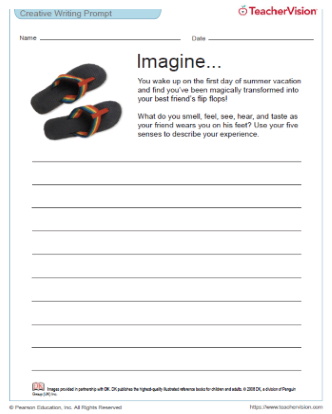
Free Printable Creative Writing Worksheets for 6th Grade
Creative Writing: Discover a world of imagination with our free printable Reading & Writing worksheets for Grade 6 students. Enhance your students' skills and creativity with Quizizz's diverse resources.

Explore Creative Writing Worksheets by Grades
- kindergarten
Explore Other Subject Worksheets for grade 6
- Social studies
- Social emotional
- Foreign language
- Reading & Writing
Explore printable Creative Writing worksheets for 6th Grade
Creative Writing worksheets for Grade 6 are an excellent resource for teachers looking to engage their students in the world of reading and writing. These worksheets provide a variety of activities and exercises designed to help students develop their skills in fiction writing, as well as other forms of creative expression. By incorporating these worksheets into their lesson plans, teachers can provide a structured and supportive environment for students to explore their creativity and improve their writing abilities. With a focus on reading and writing, these Grade 6 worksheets offer a comprehensive approach to developing students' literacy skills, ultimately preparing them for more advanced writing tasks in the future.
Quizizz is a fantastic platform that complements Creative Writing worksheets for Grade 6, offering teachers a variety of interactive and engaging activities to further enhance their students' learning experience. This platform provides a wide range of quizzes and games that can be tailored to specific topics, such as reading and writing or fiction writing, allowing teachers to reinforce key concepts and assess their students' progress. In addition to its extensive quiz library, Quizizz also offers a variety of other resources, including flashcards and interactive presentations, making it an invaluable tool for teachers seeking to create a dynamic and immersive learning environment for their Grade 6 students. By incorporating Quizizz into their lesson plans, teachers can ensure that their students are not only developing their creative writing skills but also having fun in the process.
Jump to navigation
- Inside Writing
- Teacher's Guides
Student Models
- Writing Topics
- Minilessons
- Shopping Cart
- Inside Grammar
- Grammar Adventures
- CCSS Correlations
- Infographics
Student Writing Models
How do I use student models in my classroom?

When you need an example written by a student, check out our vast collection of free student models. Scroll through the list, or search for a mode of writing such as “explanatory” or “persuasive.”
Jump to . . .
Explanatory writing.
- How Much I Know About Space Explanatory Paragraph
- My Favorite Pet Explanatory Paragraph
- Sweet Spring Explanatory Paragraph
Narrative Writing
- A Happy Day Narrative Paragraph
- My Trip to Mexico Narrative Paragraph
Creative Writing
- Happy Easter Story Paragraph
- Leaf Person Story
Research Writing
- Parrots Report
- If I Were President Explanatory Paragraph
- My Dad Personal Narrative
- The Horrible Day Personal Narrative
Response to Literature
- One Great Book Book Review
- A Fable Story
- Ant Poem Poem
- The Missing Coin Story
- Winter Words Poem
- Horses Report
- Ladybugs Report
- How to Make Boiled Eggs How-To
Persuasive Writing
- Plastic, Paper, or Cloth? Persuasive Paragraph
- The Funny Dance Personal Narrative
- The Sled Run Personal Narrative
- Hello, Spring! Poem
- Cheetahs Report
Business Writing
- Dear Ms. Nathan Email
- My Favorite Place to Go Description
- My Mother Personal Essay
- Rules Personal Essay
- Shadow Fort Description
- Adopting a Pet from the Pound Editorial
- Letter to the Editor Letter to the Editor
- Ann Personal Narrative
- Grandpa, Chaz, and Me Personal Narrative
- Indy’s Life Story Personal Narrative
- Jet Bikes Personal Narrative
- The Day I Took the Spotlight Personal Narrative
- A Story of Survival Book Review
- Chloe’s Day Story
- Did You Ever Look At . . . Poem
- Dreams Poem
- I Am Attean Poem
- Sloppy Joes Poem
- The Civil War Poem
- The Haunted House Story
- The Terror of Kansas Story
- When I Was Upside Down Poem
- Deer Don’t Need to Flee to Stay Trouble-Free! Report
- Height-Challenged German Shepherd Report
- Friendship Definition
- What Really Matters News Feature
- Cheating in America Problem-Solution
- Hang Up and Drive Editorial
- Musical Arts Editorial
- Summer: 15 Days or 2 1/2 Months? Editorial
- A Cowboy's Journal Fictionalized Journal Entry
- Giving Life Personal Narrative
- The Great Paw Paw Personal Narrative
- The Racist Warehouse Personal Narrative
- Limadastrin Poem
- The Best Little Girl in the World Book Review
- How the Stars Came to Be Story
- Linden’s Library Story
- My Backyard Poem
- The Call Poem
- I Am Latvia Research Report
- Mir Pushed the Frontier of Space Research Report
- The Aloha State Research Report
- The Incredible Egg Observation Report
- Unique Wolves Research Report
- Dear Dr. Larson Email
Personal Writing
- A Lesson to Learn Journal
- Caught in the Net Definition
- From Bed Bound to Breaking Boards News Feature
- If Only They Knew Comparison-Contrast
- Save the Elephants Cause-Effect
- Student Entrepreneur Reaches for Dreams of the Sky News Feature
- Internet Plagiarism Problem-Solution
- Mosquito Madness Pet Peeve
- Anticipating the Dream Personal Narrative
- Huddling Together Personal Narrative
- H’s Hickory Chips Personal Narrative
- It’s a Boy! Personal Narrative
- My Greatest Instrument Personal Narrative
- Snapshots Personal Narrative
- Take Me to Casablanca Personal Narrative
- The Boy with Chris Pine Blue Eyes Personal Narrative
- The Climb Personal Narrative
- The House on Medford Avenue Personal Narrative
- Adam’s Train of Ghosts Music Review
- Diary of Gaspard Fictionalized Journal Entry
- My Interpretation of The Joy Luck Club Literary Analysis
- Mama’s Stitches Poem
- The KHS Press Play
- Rosa Parks Research Report
- The Killer Bean Research Report
- Mid-Project Report on History Paper Email
- Vegetarian Lunch Options at Bay High Email
Creative Writing Topics For Class 6 Format, Topics, Examples, Exercises
Creative writing topics for class 6 format, examples, exercises, introduction.
Creative writing is a powerful tool that allows individuals to express their thoughts, ideas, and emotions through the written word. It is a form of self-expression that nurtures imagination, boosts confidence, and enhances communication skills. For class 6 students, creative writing plays a vital role in their academic and personal development. In this article, we will explore the format, topics, examples, and exercises for creative writing specifically tailored for class 6 students.
Also Read: Class 11 English Creative Writing
Format Of Creative Writing Topics For Class 6
To ensure a structured and coherent piece of creative writing, it is essential to follow a proper format. The format generally includes understanding the prompt, planning the structure, writing an introduction, developing body paragraphs, and concluding the piece.
Understanding the Prompt The first step in creative writing is understanding the prompt. Read the given prompt carefully and identify the main theme or topic. Analyze the requirements and determine the purpose of your writing.
Planning the Structure Once you grasp the prompt, plan the structure of your writing piece. Outline the main ideas or arguments you want to convey and decide how to organize them logically. Creating a structure beforehand helps in maintaining clarity and coherence throughout the writing.
Introduction Begin your creative writing piece with an engaging introduction. The introduction should provide a brief overview of the topic and grab the reader’s attention. It can include an intriguing question, a captivating anecdote, or a thought-provoking statement.
Body Paragraphs The body paragraphs form the core of your creative writing. Each paragraph should focus on a specific idea or argument related to the main theme. Use descriptive language, vivid imagery, and sensory details to engage the reader and create a vivid picture in their minds.
Conclusion Conclude your creative writing piece by summarizing the main points and leaving the reader with a lasting impression. Restate your thesis or main idea and provide a sense of closure to your piece.
Topics For Creative Writing Topics For Class 6
When it comes to choosing topics for creative writing, class 6 students can explore a wide range of options. Here are a few popular subjects to think about:
Personal Experiences Write about a memorable experience or a significant event in your life. Describe the emotions, thoughts, and lessons learned from that experience.
Imaginary Stories Let your imagination soar and create captivating stories set in fantastical worlds or everyday situations. Develop interesting characters, plot twists, and suspenseful narratives.
Descriptive Writing Practice descriptive writing by vividly describing a person, place, or object. Focus on sensory details and use figurative language to bring your descriptions to life.
Persuasive Writing Take a stance on a particular issue and present persuasive arguments to support your viewpoint. Use logical reasoning and compelling evidence to convince your readers.
Examples Of Creative Writing Topics For Class 6
To get a better understanding of how creative writing works, here are a few examples:
Example 1: Personal Experience
Title: “The Adventure of a Lifetime” Introduction: As the waves crashed against the shore, I couldn’t help but feel a surge of excitement rushing through my veins. Body Paragraph: I vividly remember the day when I embarked on a thrilling adventure to explore the depths of the coral reef. Conclusion: The experience taught me the importance of stepping out of my comfort zone and embracing the unknown.
Example 2: Descriptive Writing
Title: “A Glimpse into Paradise” Introduction: The sun-kissed beach stretched as far as the eye could see, its golden sands shimmering under the azure sky. Body Paragraph: The gentle breeze carried the salty scent of the ocean, and the palm trees swayed gracefully, casting long shadows on the sand. Conclusion: In that moment, I realized that paradise was not a distant dream but a tangible reality within our reach.
Exercises For Creative Writing Topics For Class 6
To enhance their creative writing skills, class 6 students can engage in various exercises. Try the following exercises:
Writing Prompts Utilize writing prompts to stimulate creativity. These prompts can be in the form of a sentence, a question, or a picture. Allow your imagination to run wild and create a unique story or poem based on the prompt.
Story Starters Start with a sentence or a paragraph and continue the story. Build characters, add conflict, and develop a captivating narrative that keeps the readers engaged.
Brainstorming Ideas Gather with your classmates or friends to brainstorm ideas for creative writing. Share your thoughts, inspire each other, and explore different perspectives on various topics.
Peer Feedback Exchange your writing pieces with your peers and provide constructive feedback. Learn from each other’s strengths and weaknesses, and use the feedback to improve your own writing skills.
Conclusion On Creative Writing Topics For Class 6
Creative writing offers class 6 students a wonderful opportunity to express their thoughts, ignite their imagination, and develop crucial skills. By following a structured format and exploring a variety of topics, students can unleash their creativity and improve their writing abilities. Engaging in exercises such as writing prompts and peer feedback further enhances their growth as writers. So, encourage your class 6 students to embrace creative writing and watch them flourish as confident and articulate individuals.

Narrative Writing | Student Writing Samples
Narrative Writing Sample- Grade 6
Read Time 3 mins | Dec 8, 2021 4:23:31 PM | Written by: Toolbox
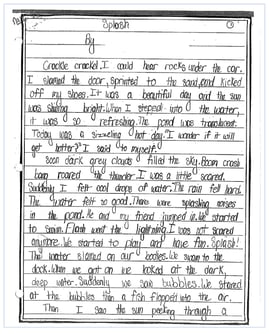
Narrative Writing Grade 6 Sample Splash!
Feedback for Improvement
What worked:
- There is a sense of story with a beginning, middle and end.
- The word choice is often high level - slammed, sprinted, flopped, tranquil, glistened
- Entertaining Beginning: There was a mix of sound, action and thought - the author established the setting - the pond on a hot day
- Elaborative Detail: There was plenty of elaborative detail - in the second paragraph, the author describes the setting - “Soon grey clouds filled the sky. Boom crash bang roared the thunder. I felt cool drops of water. We stared at the bubbles then a fish flopped into the air.”
- Extended Ending : The author used a mix of memory, hope and thought.
Can you summarize this story?
This is a story about ______________.
The problem/adventure was _____________.
The problem was solved/adventure concluded when ___________.
Feedback with Prescriptive Lesson: CHOOSE a Focus Skill:
- Section 1 Lesson 1: Introducing Graphic Organizers with Summarizing Framework
- Section 1 Lesson 9: Annotating Narrative Stories - build foundation for story writing
- Section 1 Lesson 11: Analyzing Assignments for Givens and Variables - creating pre-writing plans
Suspense: There was some evidence of suspense in the word “Suddenly,” however, it would improve the writing to add a magic of three as the thunderstorm rolled in.
- Section 4 Lesson 3: Red Flag Words and Phrases
- Section 4 Lesson 4: The Magic of Three
Main Event: What appears to be the main event is mostly description with some very general action. What was the main event of the story? Once that is established then add a balanced mix of action, description, thoughts/feelings, dialogue, and sound.
- Section 5 Lesson 1: Comparing Summaries
- Section 5 Lesson 2: Main Event
This student will benefit from participating in modeled lessons to develop the middle of the story- both suspense and main event.
Recommended Resources
- Empowering Writer's Methodology
- Narrative Writing Guide for Grade 6

All Formats
Resource types, all resource types.
- Rating Count
- Price (Ascending)
- Price (Descending)
- Most Recent
Free 6th grade creative writing projects
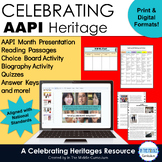
AAPI Heritage Month Unit
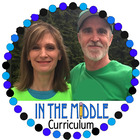
Critical Thinking Text Puzzles Bundle | Sub Plans Middle School ELA | SEL

Cinco De Mayo Activities Reading Comprehension Print and Digital Boom Cards
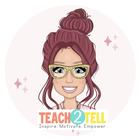
Summer 3rd Close Read Comprehensive Passages with Complex Text Dependent Ques.
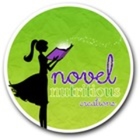
6th Grade EXPRESSIONS AND EQUATIONS Assessments (6.EE) Common Core | DIGITAL
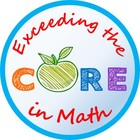
Reader's Theater Bundle: 12 Engaging Scripts for Big Kids

6th Grade Math Centers Task Cards Bundle, Games Stations, Math Review Activities

Paragraph Building: Informative / Explanatory Writing
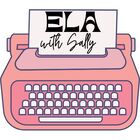
CHARACTER ANALYSIS Book Report Activity | Generic Novel Unit Study Activity FREE

Parts of Speech Practice: Create a Menu (Middle School Grammar)
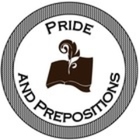
The Lost World - Creative Writing Unit - Descriptive and Narrative Writing
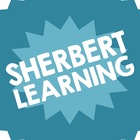
Monster for Sale! A Persuasive Writing Project
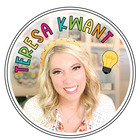
*Student Project* Design Your Own School

- Word Document File
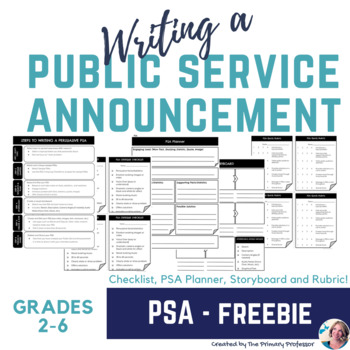
FREEBIE: Writing a Public Service Announcement for Grades 2-6

Beginning of the Year Activity - Name Glyph

Poetry Book Project - Free with Easel Activity

- Easel Activity
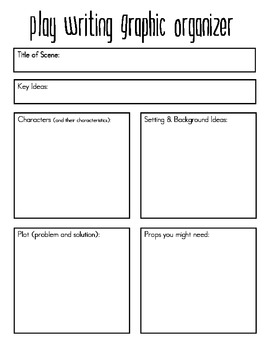
Readers Theater: Play Writing Graphic Organizer
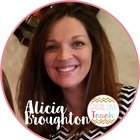
Soundtrack Of My Life {Student Project}

POETRY MONTH ACTIVITY | Personification Poetry Walk | Figurative Language Skills

I AM - Poem Writing Using Similes
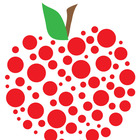
Letter to Favorite Teacher (An End of year activity)

Weathering and Erosion Writing Project Activity - Diary of a Rock Cycle
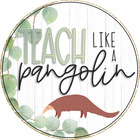
- Google Slides™
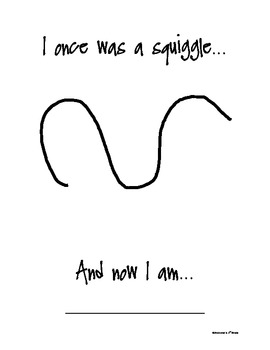
I Once Was a Squiggle
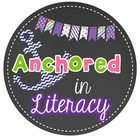
I AM Personal Narrative Project
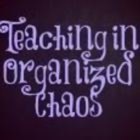
Patriotic Writing Paper
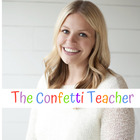
Mother's Day Card: Free Printable Award for Mom. Write "I love my mom because"

Inference and Drawing Conclusions with Text Evidence

Adjective Advertisement! Be persuasive!
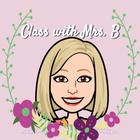
Severe Weather project

Geography Country Project FREEBIE (create your own country)

Book Week Writing Project

Writing Story Books
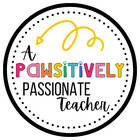
- We're hiring
- Help & FAQ
- Privacy policy
- Student privacy
- Terms of service
- Tell us what you think
Grade 6 Writing
Discover grade 6 writing standards.

Sixth-grade writing is all about demonstrating complexity in original work. Learners at this grade level are expected to continue developing their English language arts skills to better articulate their thoughts effectively and showcase the writing skills they’ve acquired during their time in elementary school. In Grade 6, you child should write stronger arguments, more engaging stories, and present factual information with ease.
Similar to the lower grade levels, your child will continue to develop a strong understanding of the relationship between reading and writing, as they will now have to start analyzing information to determine the main points of a text in order to inform their writing.
Grade 6 Writing Goals:
- I can write clear arguments and provide evidence to support my claims
- I can maintain a formal or informal tone throughout my writing
- I can write strong conclusions and story endings
- I can use linking words and phrases to connect ideas and paragraphs
- I can research and include facts in my reports
- I can use dialogue and vary the pace in my narratives
- I can use technology to produce and publish my writing
- I can clearly write in different styles and text types
- I can write with stamina for a sustained period of time
Grade 6 students will predominantly focus on three key writing approaches:
Opinion Writing
Informative writing, narrative writing.
The advice below will set up your child for sixth-grade writing success!
Argument and opinion writing are very important writing skills, as they allow learners to effectively voice their opinion and share different perspectives on the same piece. Once they master these skills, they’ll be able to state a clear point of view and support it with reason and evidence.
Arguments should be written in a formal style. Understanding the difference between formal and informal writing, and when each should be used is a skill children will learn in sixth grade.
Being able to use linking words is an important skill your child should have at this grade level. These words are the glue that stick claims and reasons, sentences and paragraphs, together. By sixth grade, children are expected to use a variety of linking words effectively when writing arguments.
Here are a few for you to practice with your children:
- consequently, as a result, therefore, henceforth, moreover,
- furthermore, similarly, additionally, equally, likewise,
- nevertheless, even so, regardless, in contrast, despite, finally, immediately
When a child has crafted their argument by clearly stating their position, giving reasons, adding supporting details, and using linking words, they need to write a concluding statement. A concluding statement should wrap up the argument. It could summarize the main points from their argument, or rephrase their position, and it should end on a positive note.
Practice Tip
You can encourage your child to work on understanding the differences between formal and informal language by comparing two different texts and discussing their similarities and differences.
When writing informative texts, there are a variety of different strategies that children can use depending on the topic and purpose. Using definitions and cause/effect are examples of these.
Here are some top tips on how to plan an informative piece of writing:
- Identify the main topic of the piece.
- Create a list or discuss important points to mention.
- Organize the points discussed by order of importance.
- Offer a factual and neutral point of view - offering statistics if needed. Topics should be developed with facts, definitions, details, and quotations.
- Be precise and clear on the points made. Use a variety of linking words to clarify the relationship between ideas and to help transition between sentences and paragraphs.
Informative writing pieces should be closed with a concluding section that summarizes the main points and leaves the reader thinking about the topic. This conclusion should offer recommendations on further reading for the audience, or leave the reader with questions relating to the future of the topic.
Work on informative writing by asking your child to write a weekly grocery shopping list, asking them to name all of the essential items which are used on a regular basis. Looking for more? Our reading & writing program for kids offers lots of lessons on how to incorporate factual information into a piece of informative writing!
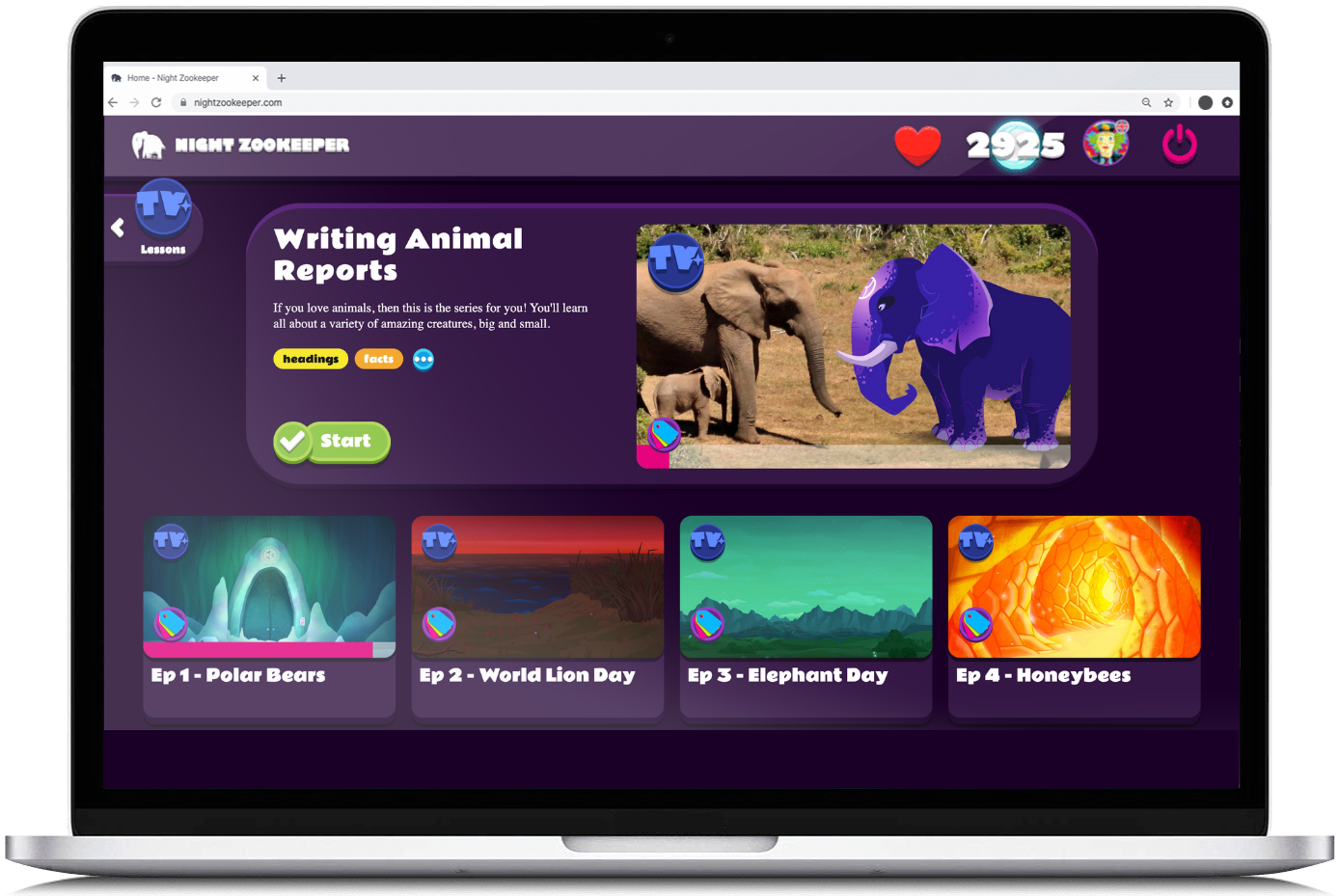
Technique, description, and a well-sequenced plot are all expected features of sixth grade level narratives. When working on narrative writing, some aspects to focus on include a clear focus on the topic, good descriptions of characters , settings and other imagery relevant to the narrative. Narratives may also include techniques such as dialogue.
These narrative techniques are very useful, as they allow the plot to move forward and help to develop well-rounded characters.
Young writers should utilize figurative language (including similes, metaphors, and personification) and a wide vocabulary to include precise words and phrases in their short stories. Narrative writing relies heavily on providing a high level of detail with the aim to allow the reader to clearly visualize the actions, characters and settings present in the story. For example, adverbials of time and place are linking words we often use to sequence paragraphs. They show shifts in time and place that help readers follow the sequence of a narrative.
Concluding a piece of narrative writing may sometimes be challenging, as there are many techniques to choose from. We really encourage writers to try out different endings to their narrative pieces, including cliffhangers, unexpected plot twists or a classic happy ending!
The narrative lesson series on our program is a great way to help your young writer to explore narrative techniques such as pacing, description, and dialogue to move the plot forward and develop characters and events.
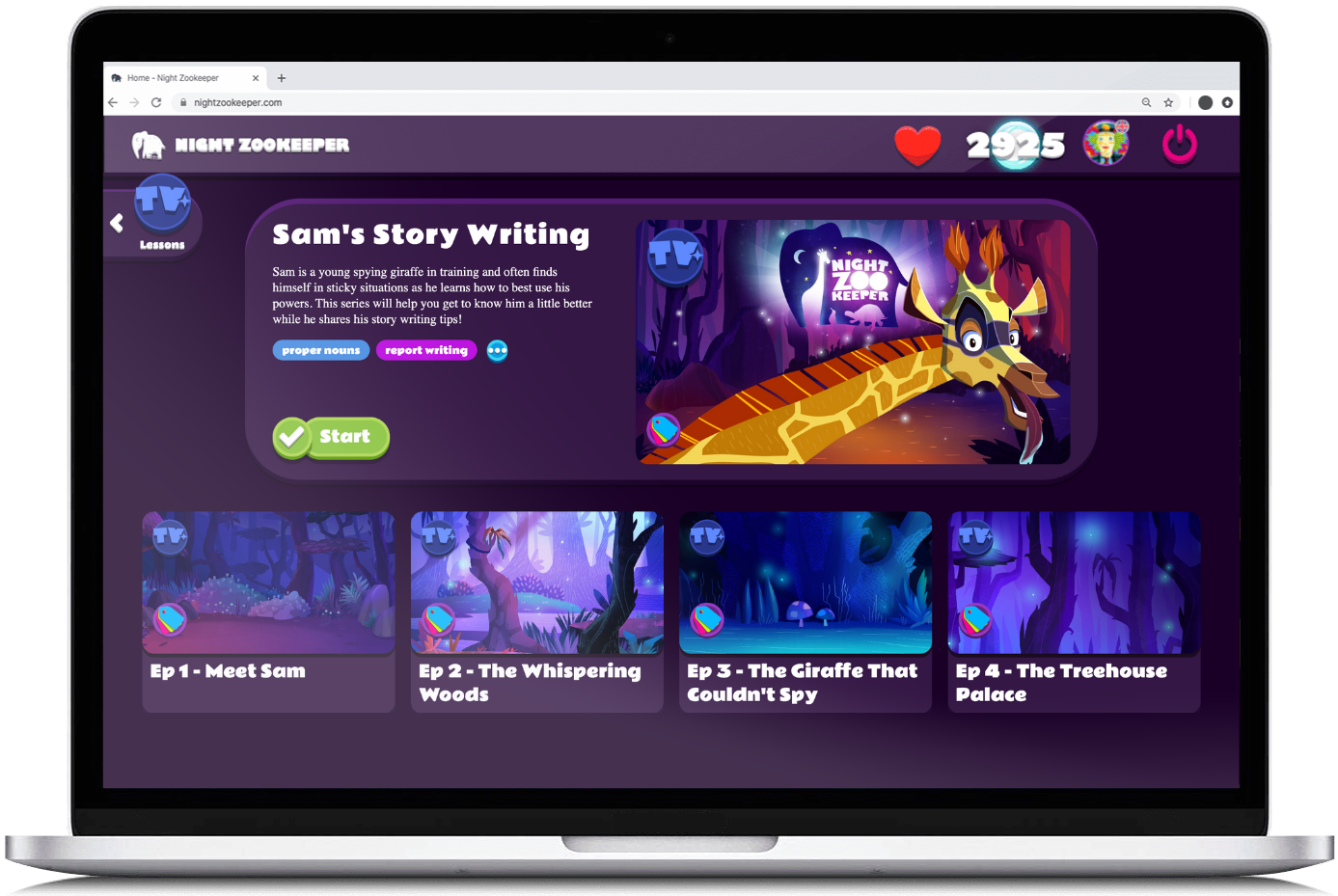
How Night Zookeeper can help

Night Zookeeper is a language arts program created to support sixth grade students as they prepare for middle school. Our gamified approach to teaching writing puts an educational twist on video games to help students to stay focused, engaged and entertained as they learn!
Our program hosts a wealth of award-winning sixth-grade writing content, including challenges, writing assignments, interactive lesson series, creative writing prompts, printable resources, and much more!
With the regular feedback provided by our tutors to children, our program helps learners to develop good habits in regards to drafting and redrafting their writing.
Related articles
- Elementary Writing
- Grade 6 Writing Prompts
- Grade 6 Reading
- Grade 6 Spelling
- Grade 6 Grammar
- Grade 6 Punctuation

Make Reading & Writing Fantastically Fun!
- Award-winning reading & writing program for kids
- Improves spelling, grammar, punctuation & vocabulary
- Over 1,000 different learning games and activities

Purdue Online Writing Lab Purdue OWL® College of Liberal Arts
Welcome to the Purdue Online Writing Lab

Welcome to the Purdue OWL
This page is brought to you by the OWL at Purdue University. When printing this page, you must include the entire legal notice.
Copyright ©1995-2018 by The Writing Lab & The OWL at Purdue and Purdue University. All rights reserved. This material may not be published, reproduced, broadcast, rewritten, or redistributed without permission. Use of this site constitutes acceptance of our terms and conditions of fair use.
The Online Writing Lab at Purdue University houses writing resources and instructional material, and we provide these as a free service of the Writing Lab at Purdue. Students, members of the community, and users worldwide will find information to assist with many writing projects. Teachers and trainers may use this material for in-class and out-of-class instruction.
The Purdue On-Campus Writing Lab and Purdue Online Writing Lab assist clients in their development as writers—no matter what their skill level—with on-campus consultations, online participation, and community engagement. The Purdue Writing Lab serves the Purdue, West Lafayette, campus and coordinates with local literacy initiatives. The Purdue OWL offers global support through online reference materials and services.
A Message From the Assistant Director of Content Development
The Purdue OWL® is committed to supporting students, instructors, and writers by offering a wide range of resources that are developed and revised with them in mind. To do this, the OWL team is always exploring possibilties for a better design, allowing accessibility and user experience to guide our process. As the OWL undergoes some changes, we welcome your feedback and suggestions by email at any time.
Please don't hesitate to contact us via our contact page if you have any questions or comments.
All the best,
Social Media
Facebook twitter.

IMAGES
VIDEO
COMMENTS
Creative Writing Topics for Grade 6. A Magical Land: Describe a world where magic is real and part of everyday life. Time Travel Adventure: Write a story about traveling back in time to a significant historical event. Superhero Origins: Create the origin story of a new superhero, including their powers and motivations.
100 Creative 6 th Grade Writing Prompts. Sixth grade is the right time to introduce students to activities that promote self-expression and improves their overall writing skills. In this post, we have come up with a list of 100 writing prompts — from storytelling and expository to research and creative writing prompts — to help students tap ...
Sixth Grade Creative Writing Worksheets. Authored by: TeacherVision Staff. Last edited: November 9, 2022. Let your sixth-grade students show you how imaginative they can be, with our most popular creative writing printables. We have plenty of poetry and short-story activities for them to enjoy, plus many other types of lessons!
Choose from 100 prompts, story starters, research topics, and poetry ideas to start the writing process in a sixth-grade classroom.
33 6th Grade Writing Prompts + 17 NEW Bonus Ideas for Middle Schoolers— You can use these wonderful writing prompts for 6 th graders to help your students grow and prepare for the challenges they'll face in the coming years—and to give them a great foundation from which to start.
This writing prompt will really tap into students' creativity and imagination. Since flying is something they clearly have never done, they will have to think about all the things that would be possible and choose a few to write about. 3. Letter to Future Self. Prompt: Write a letter to your future self.
6th Grade Writing Prompts. Category 1: Adventure. Whether it's a mysterious journey, a scientific discovery, or the voyage to find a lost cat, let these creative writing prompts take you further into adventure. Writers can use these prompts to imagine encounters with adversaries, kings, cats, and more. Identify an adventure or quest of ...
Creative Writing Prompts. Examples of creative writing prompts for grade 6 students include imagining a hidden room in their home, a day when everyone's dreams come true, and communication with animals. These prompts encourage students to think outside the box and explore their imagination. Through these exercises, students can develop their storytelling skills and express their ideas in ...
These prompts will help your sixth graders learn the essentials of procedural writing. 26. Make a user guide for anything you use frequently (e.g., your computer, smartphone, video game console). 27. Write a set of instructions for cleaning your room. 28.
Introducing writing prompts at the 6th-grade level also enhances students' analytical and problem-solving abilities. They learn to use evidence, logic, and reasoning to support their viewpoints and persuade readers. Additionally, writing prompts allow students to explore their creativity and foster a sense of self-discovery.
25 exciting sixth grade writing prompts. These Grade 6 writing prompts are the perfect way for your child to consolidate knowledge gathered on different styles of writing! Here are the categories covered in this page: Character, Setting, Object. Metaphor story starters.
Now you can use these 6 th grade journaling prompts in your classroom to give your students a safe, comfortable space to consider their thoughts and opinions without worrying about judgment from others!. Plus… As your sixth graders explore what inspires them about their heroes and complete writing exercises like a poem about their favorite day of the year, they will become more confident in ...
Letter for Great Mail Race. Students practice writing and word processing a letter to be used in The Great Mail Race. Browse our printable 6th Grade Creative Writing Lesson Plans resources for your classroom. Download free today!
More Free Grade 6 Writing Resources. 6th Grade Journal Prompts — Here you will find a wonderful list of 31 prompts and writing ideas for your grade 6 child.. As sixth graders enter middle school and prepare to become teenagers, many kids find themselves struggling to understand their emotions and to express their changing, unique personalities.
Use this worksheet to teach students how to write a script to perform in class. This activity can be used in conjunction…. Give children practice in identifying adjectives. Browse our printable 6th Grade Creative Writing Worksheets resources for your classroom. Download free today!
With a focus on reading and writing, these Grade 6 worksheets offer a comprehensive approach to developing students' literacy skills, ultimately preparing them for more advanced writing tasks in the future. Quizizz is a fantastic platform that complements Creative Writing worksheets for Grade 6, offering teachers a variety of interactive and ...
Student Models. When you need an example written by a student, check out our vast collection of free student models. Scroll through the list, or search for a mode of writing such as "explanatory" or "persuasive.".
Examples Of Creative Writing Topics For Class 6. To get a better understanding of how creative writing works, here are a few examples: Example 1: Personal Experience. Introduction: As the waves crashed against the shore, I couldn't help but feel a surge of excitement rushing through my veins.
Narrative Writing. Grade 6 Sample. Splash! Feedback for Improvement. What worked: There is a sense of story with a beginning, middle and end. The word choice is often high level - slammed, sprinted, flopped, tranquil, glistened. Entertaining Beginning: There was a mix of sound, action and thought - the author established the setting - the pond ...
This Book Week Writing Project is designed to be completed across a whole week and can be used in the classroom or for online learning.Students will work their way through planning, writing, editing, publishing, illustrating and then recording their own picture book. Subjects: Creative Writing, Reading, Writing.
Narrative Essay Topic Ideas for Students. Argumentative Essay Topics for Middle School. Expository Essay Topic Ideas. Story Writing Topics for Grades 5 - 9. Essay writing curriculum 6th grade. These 37 essay topics for 6th graders will help your kids form opinions, explore their ideas on paper, and express their thoughts confidently.
By sixth grade, children are expected to use a variety of linking words effectively when writing arguments. Here are a few for you to practice with your children: consequently, as a result, therefore, henceforth, moreover, furthermore, similarly, additionally, equally, likewise, nevertheless, even so, regardless, in contrast, despite, finally ...
The Online Writing Lab at Purdue University houses writing resources and instructional material, and we provide these as a free service of the Writing Lab at Purdue. Students, members of the community, and users worldwide will find information to assist with many writing projects.